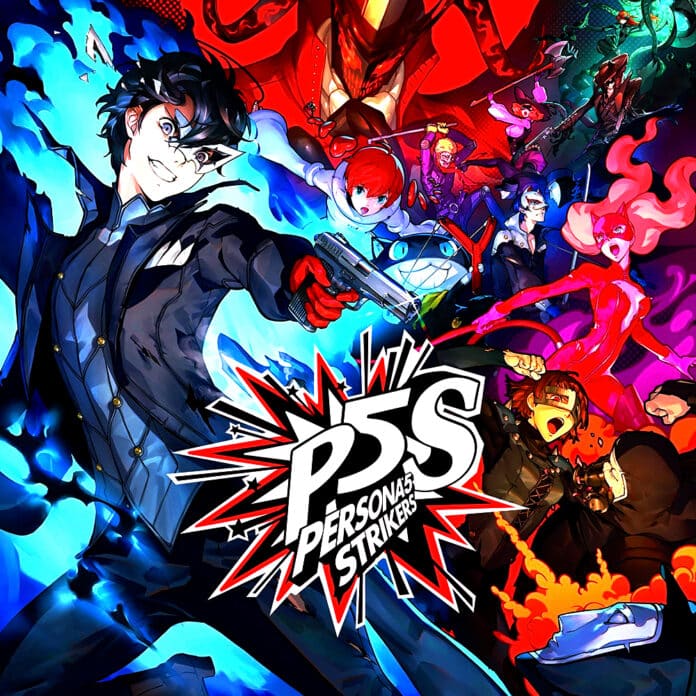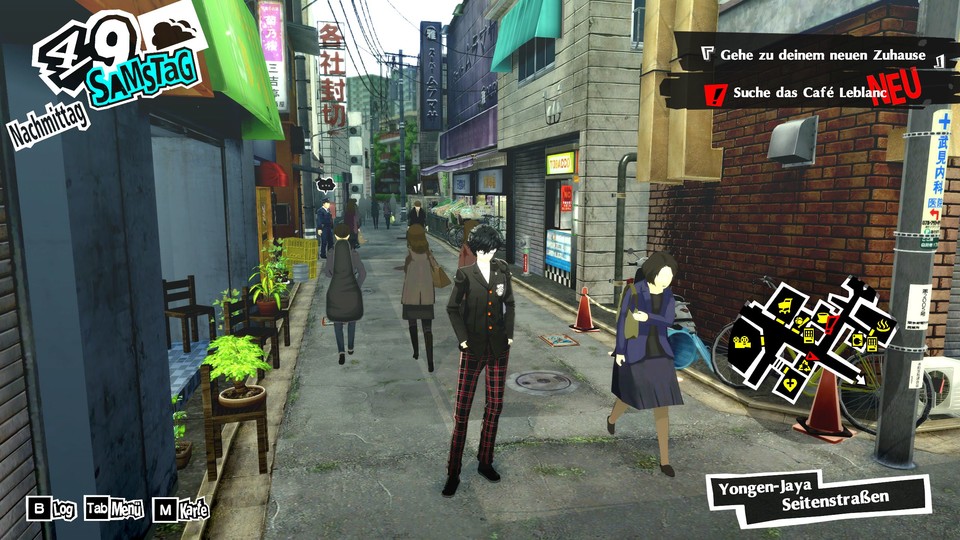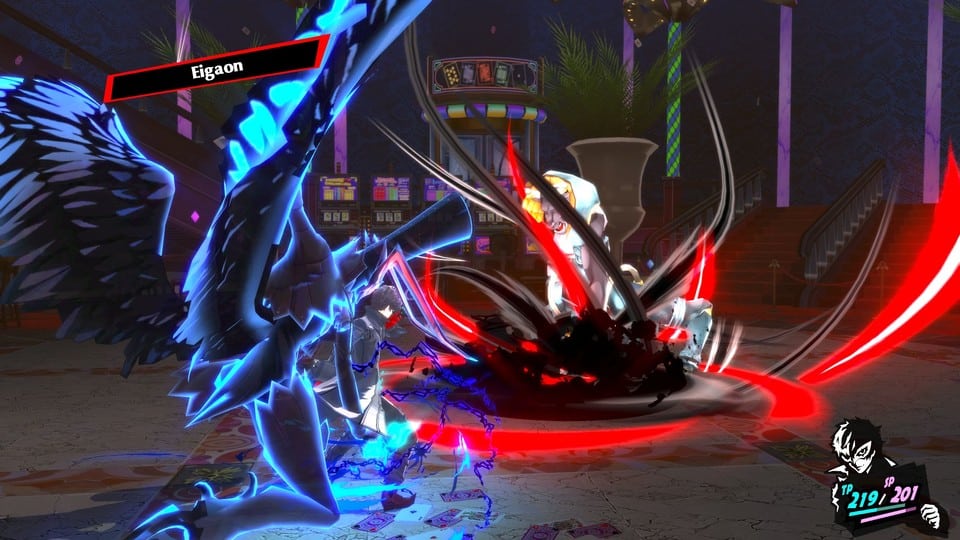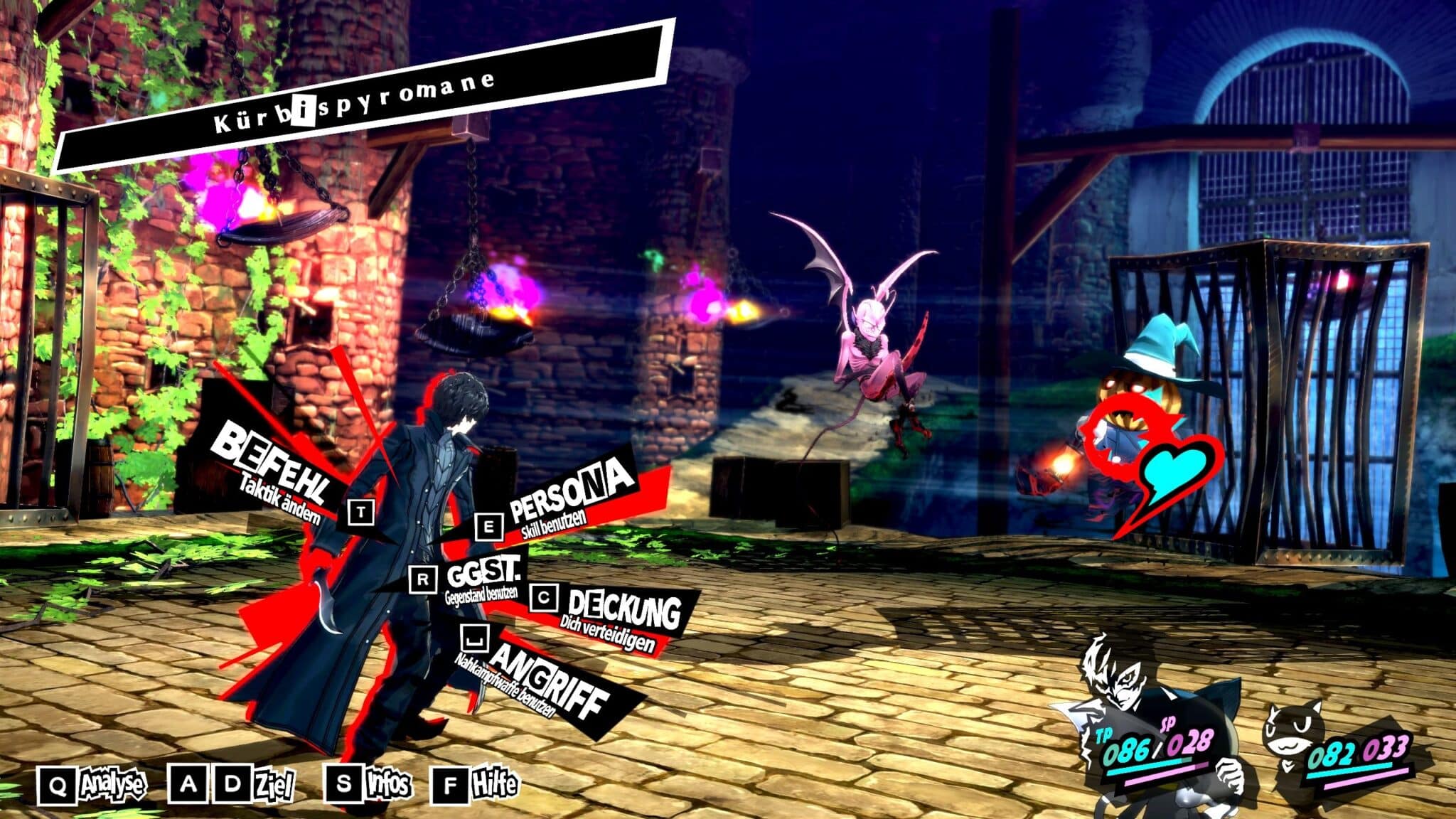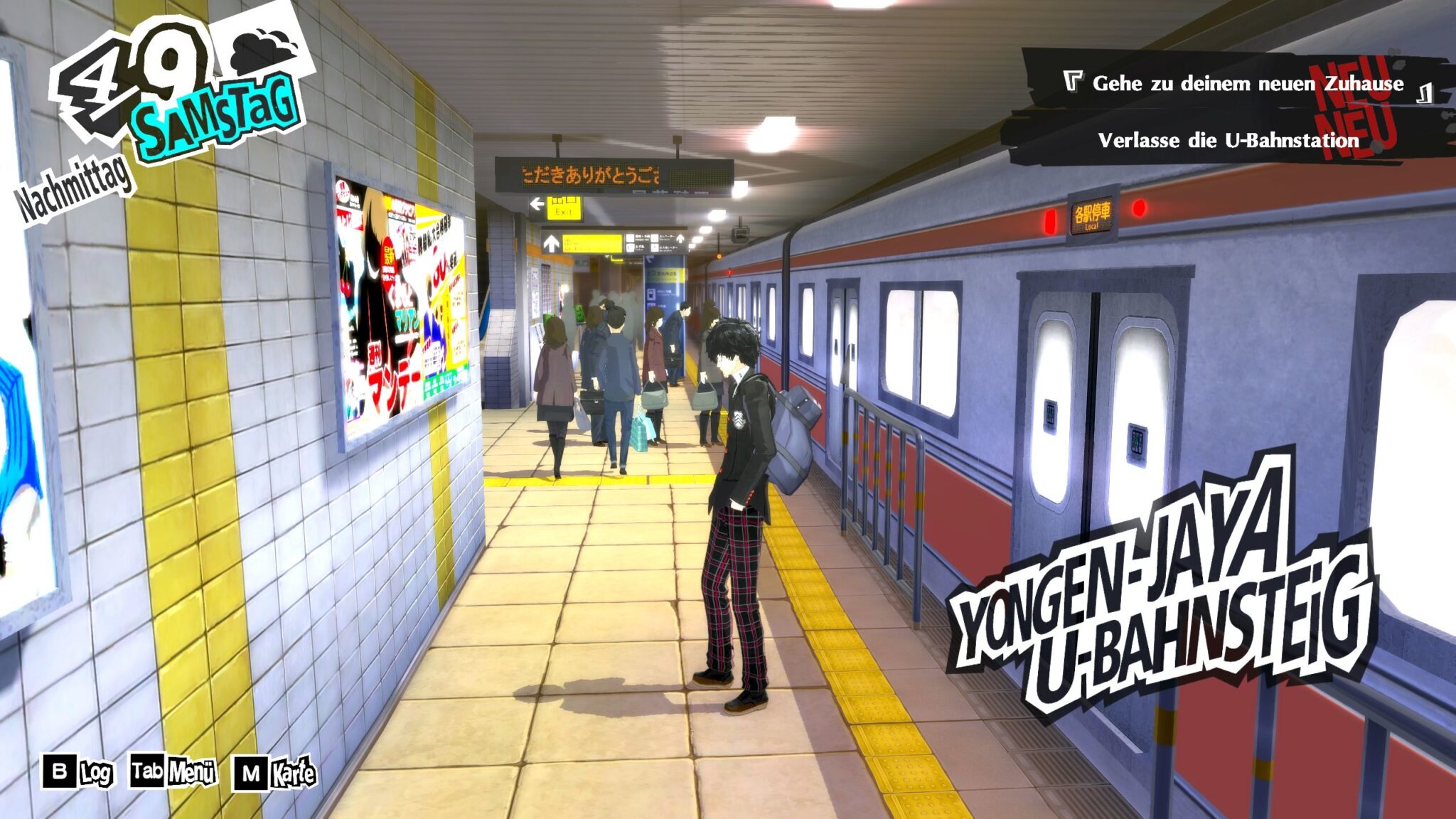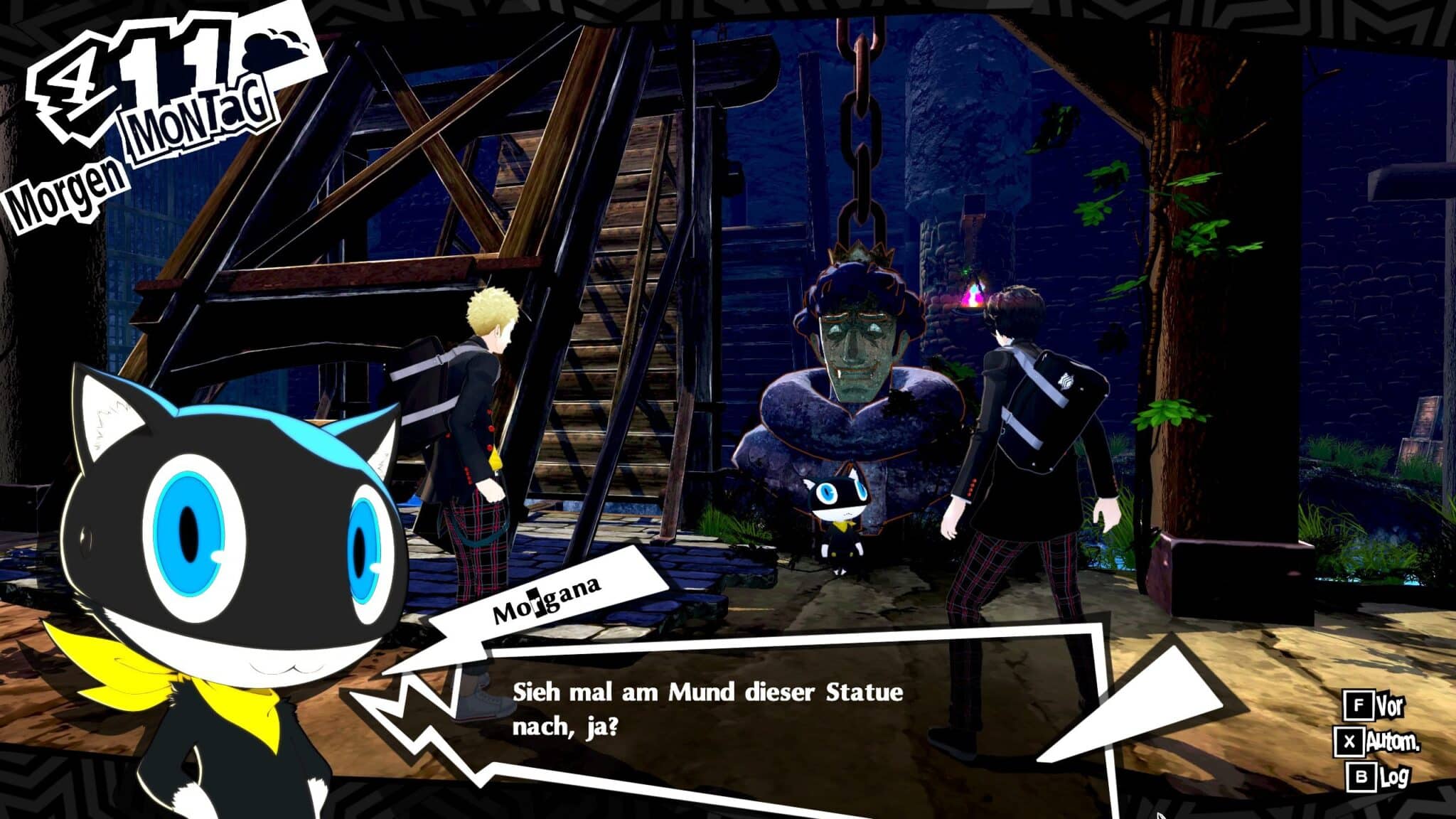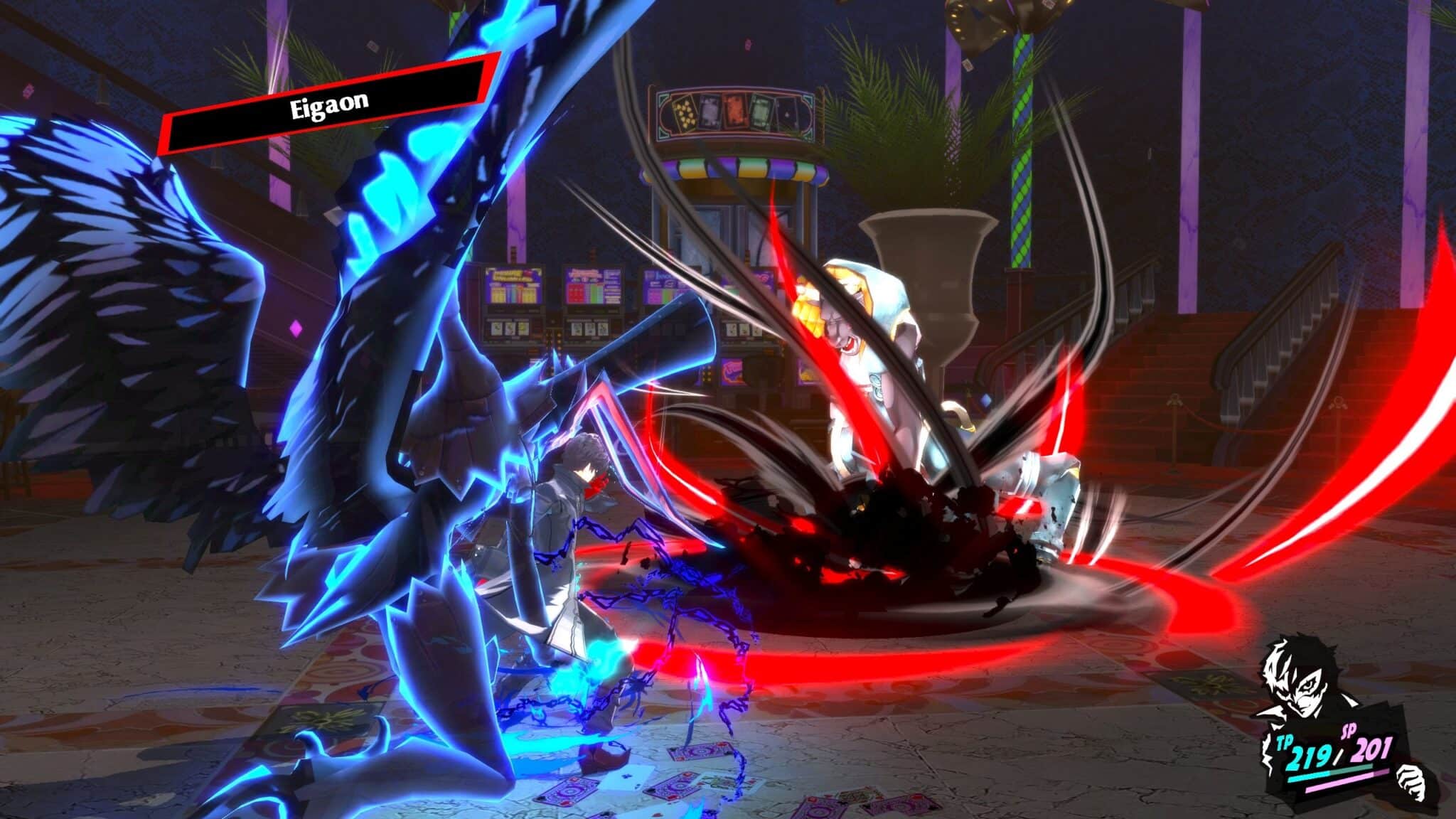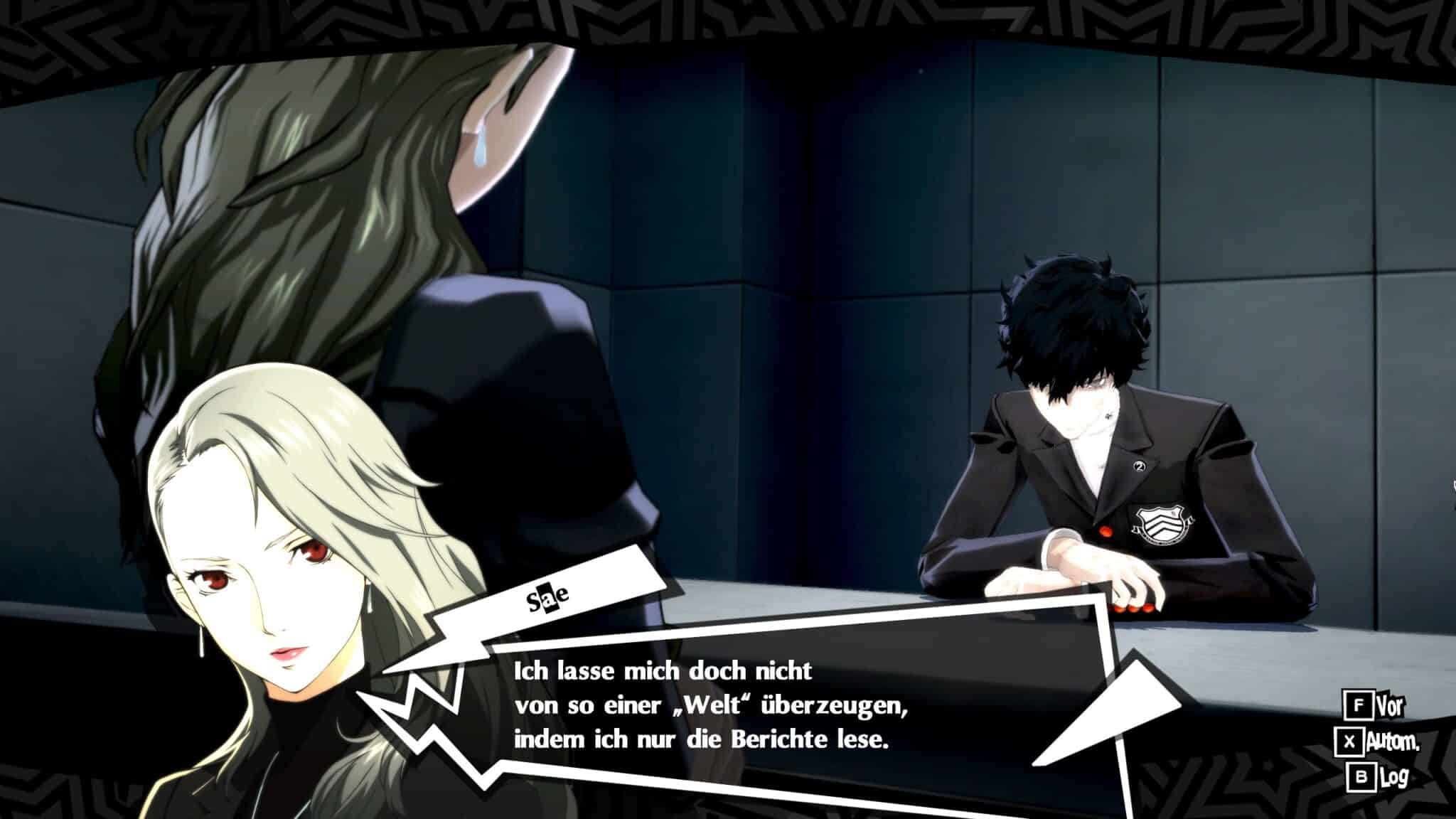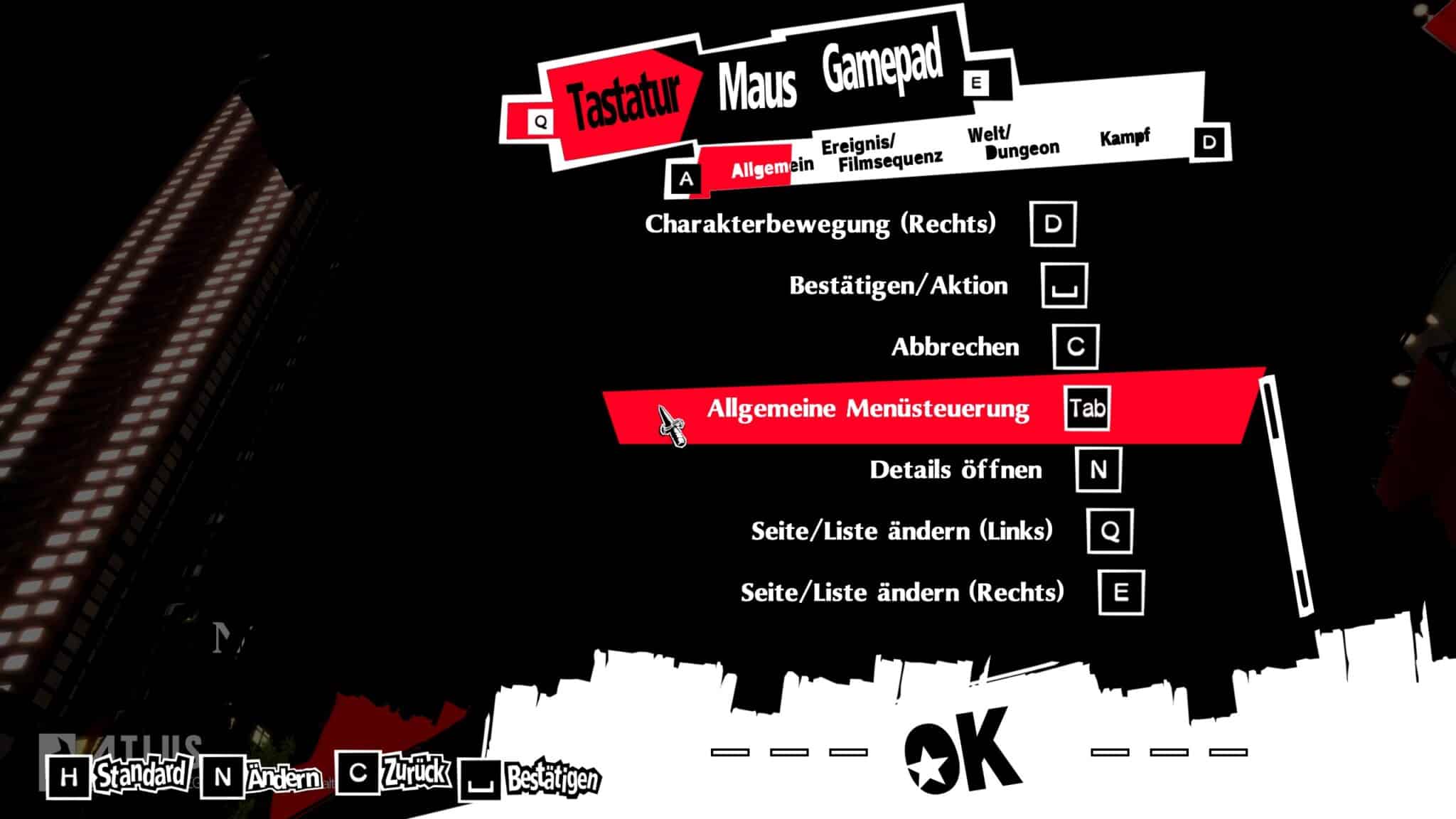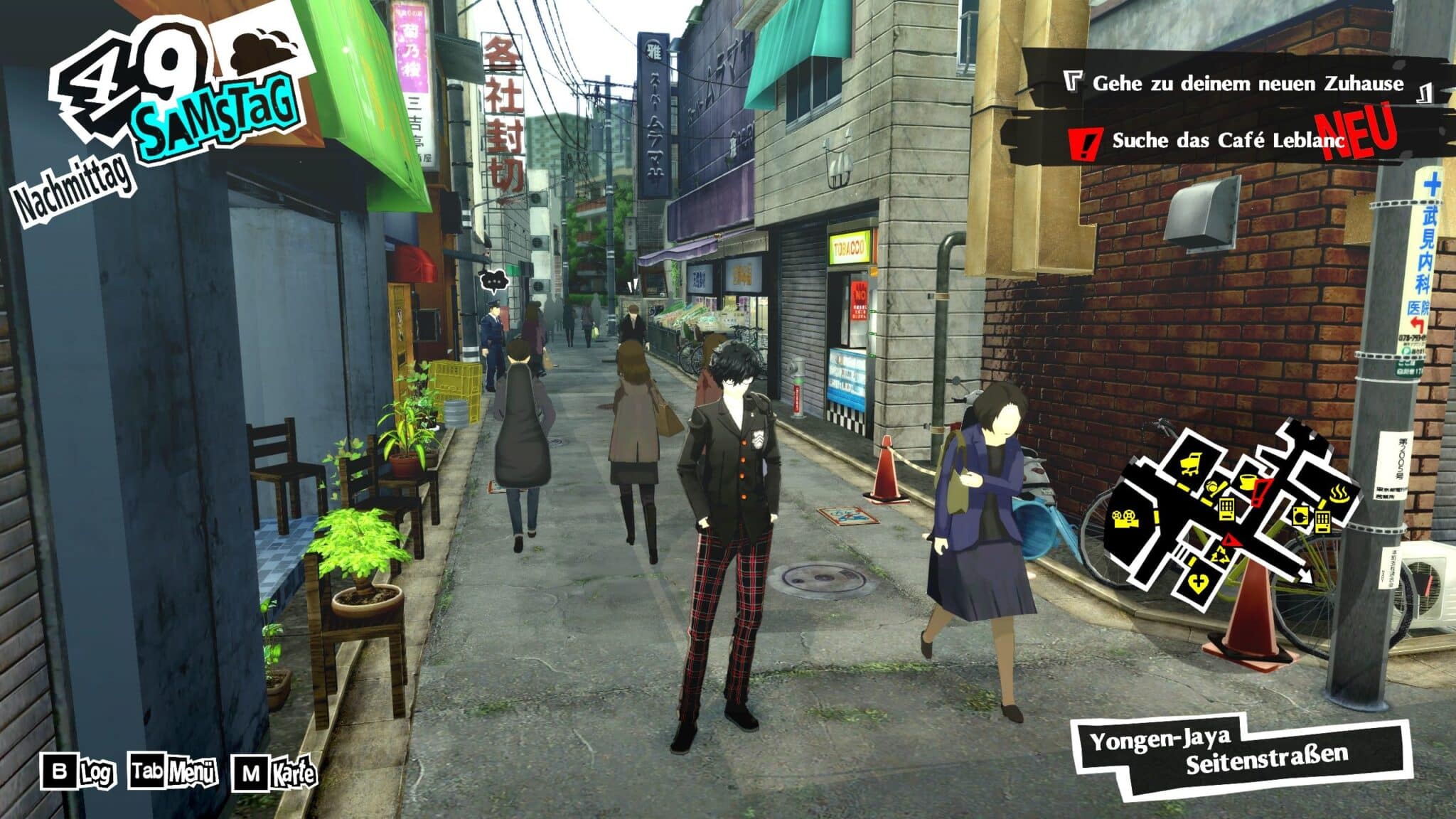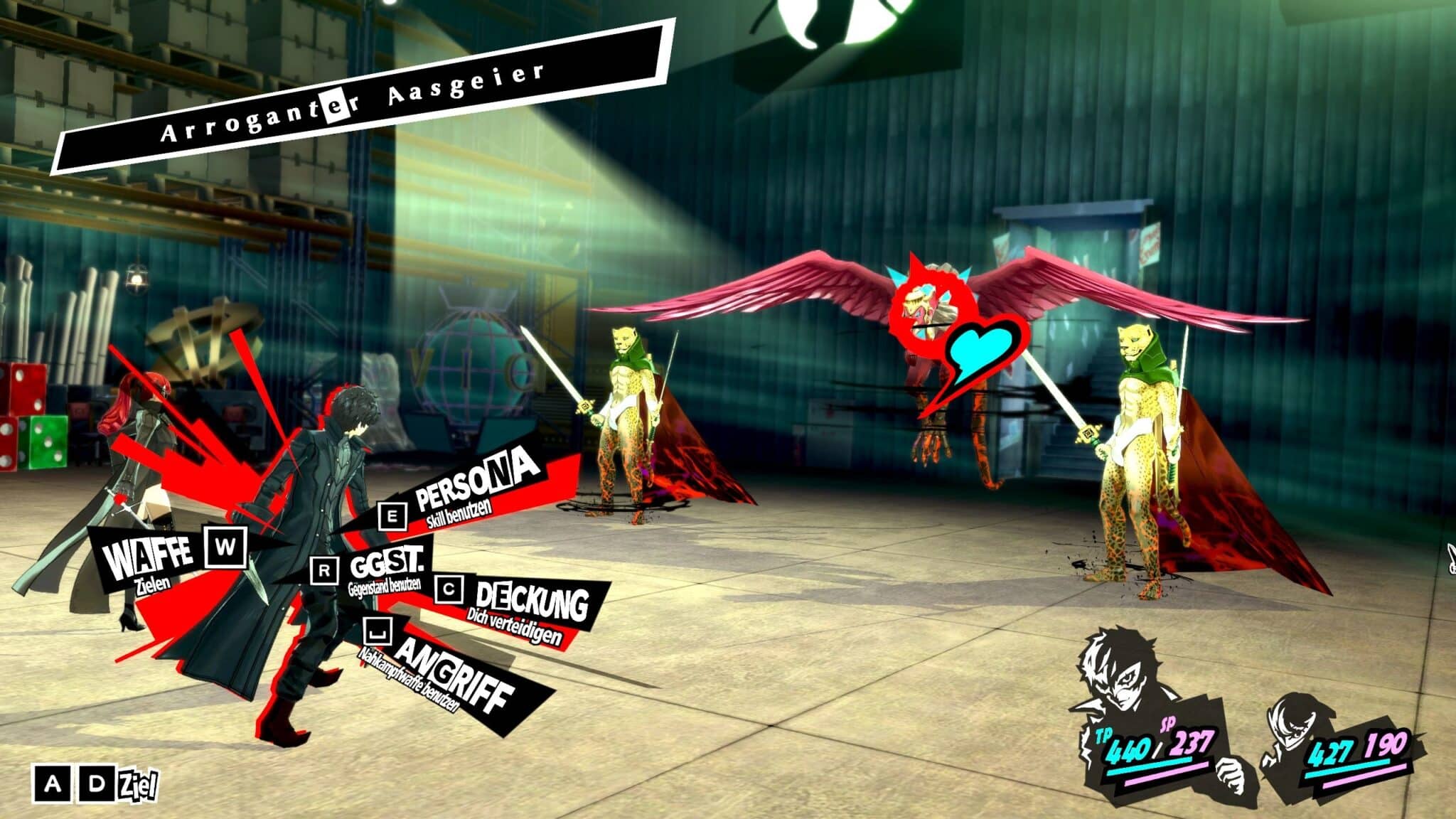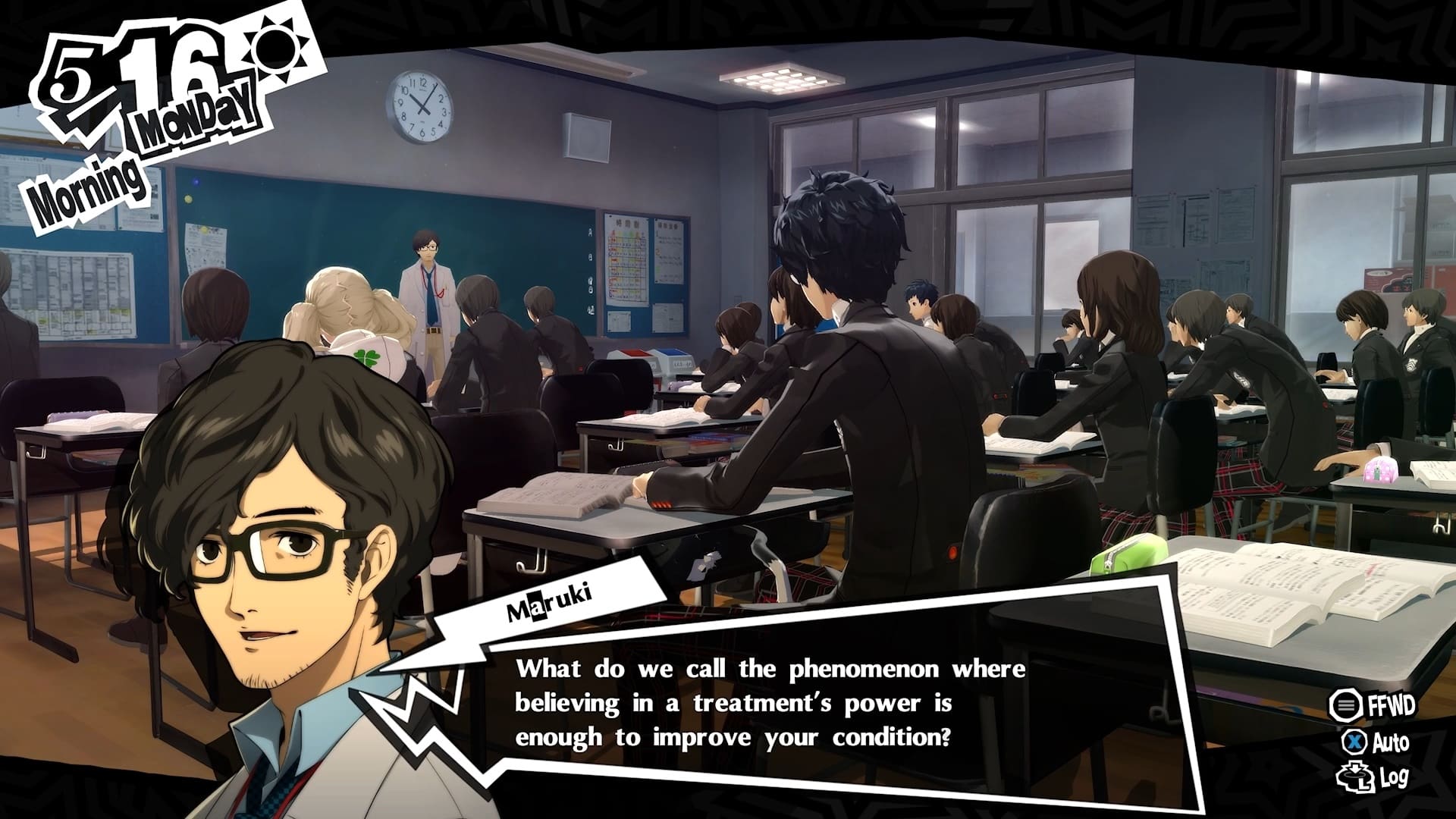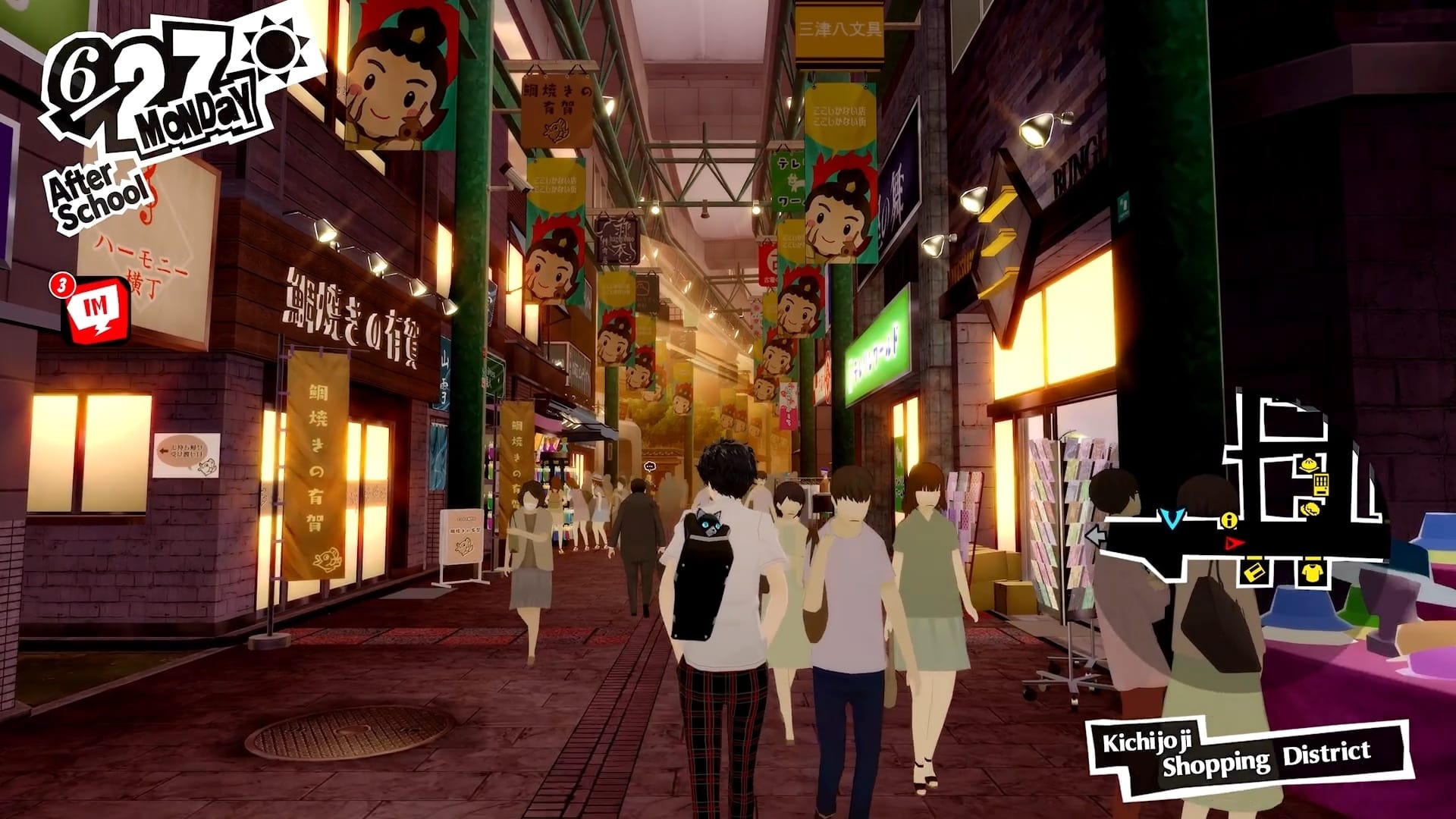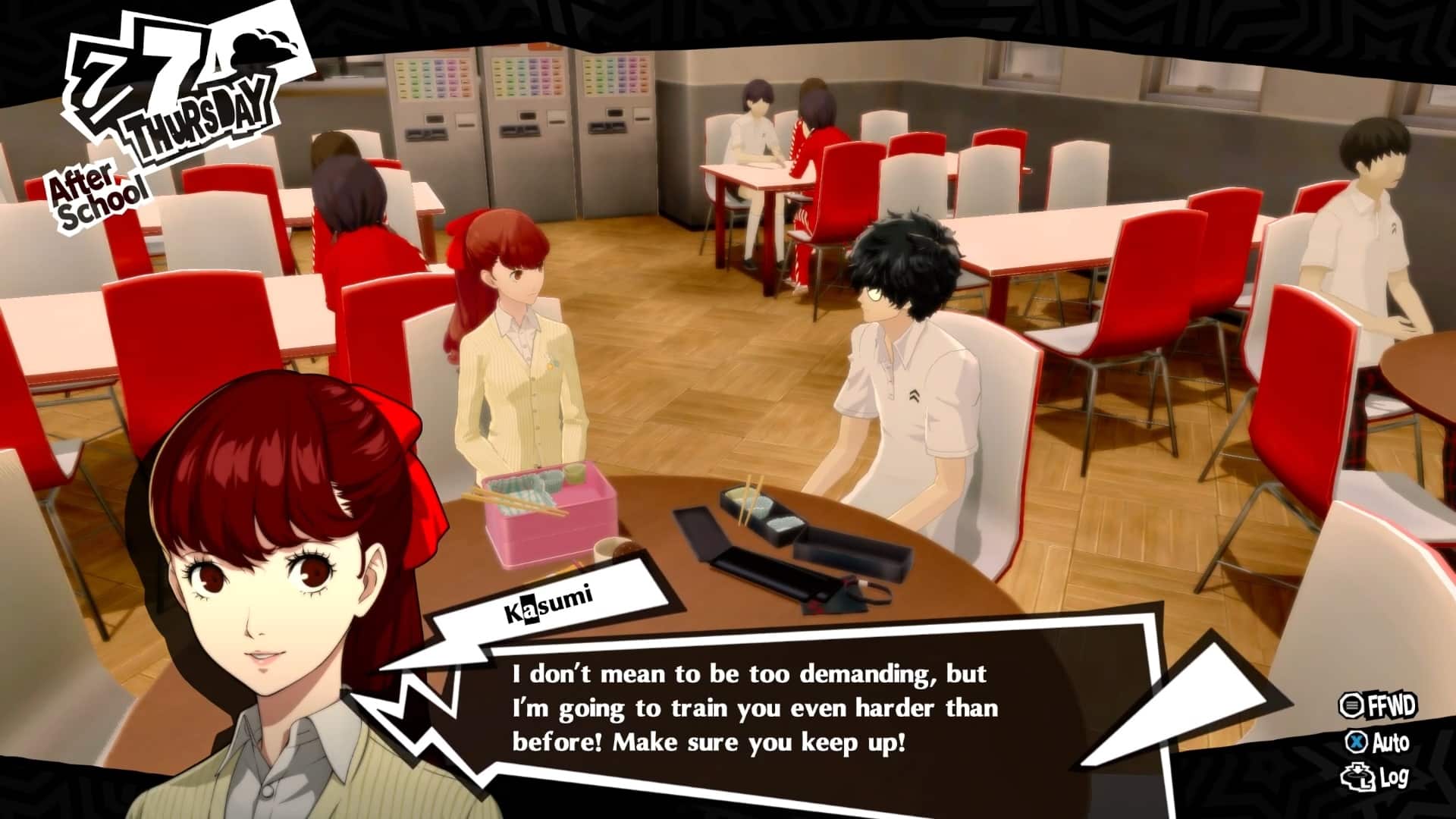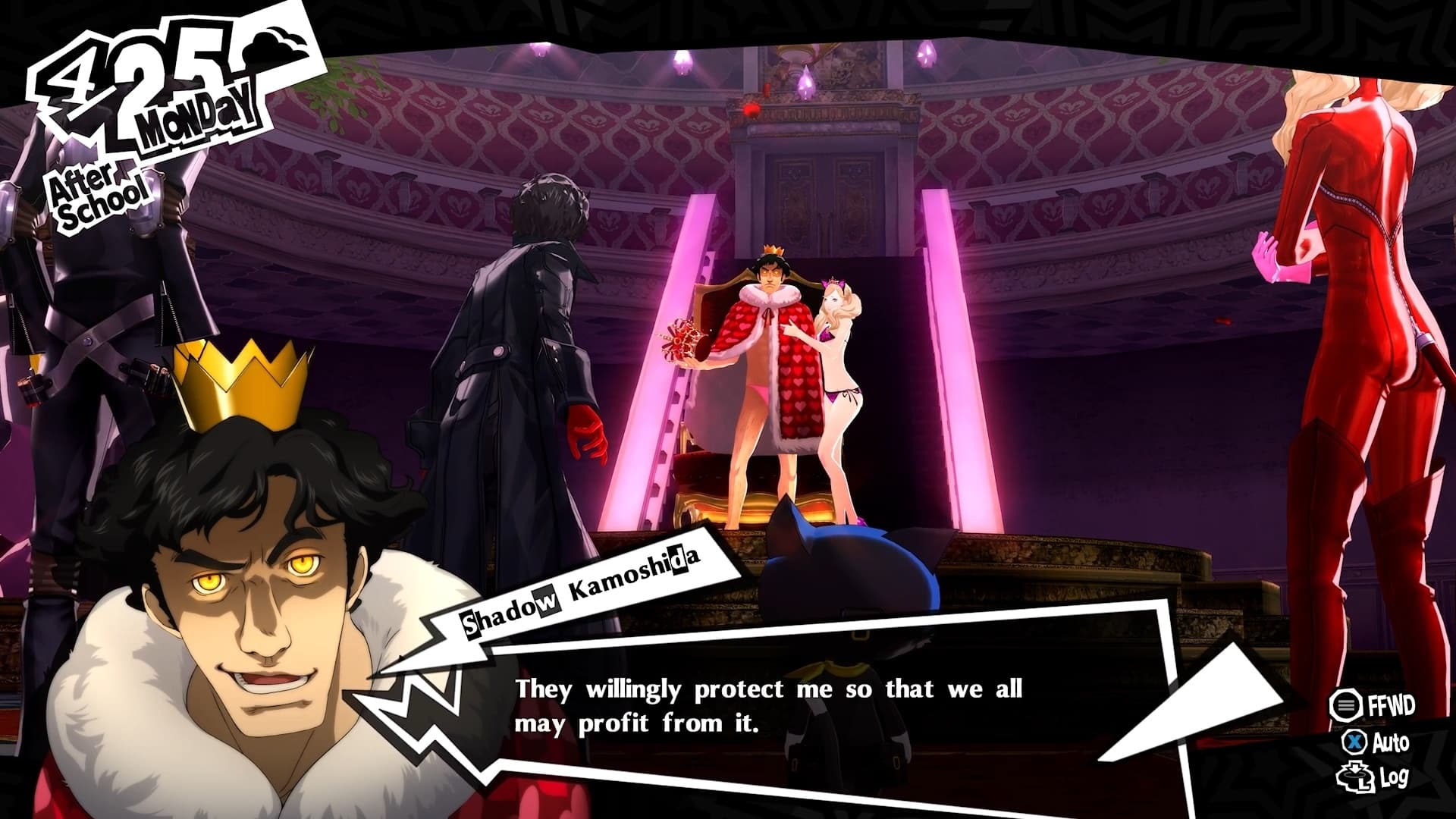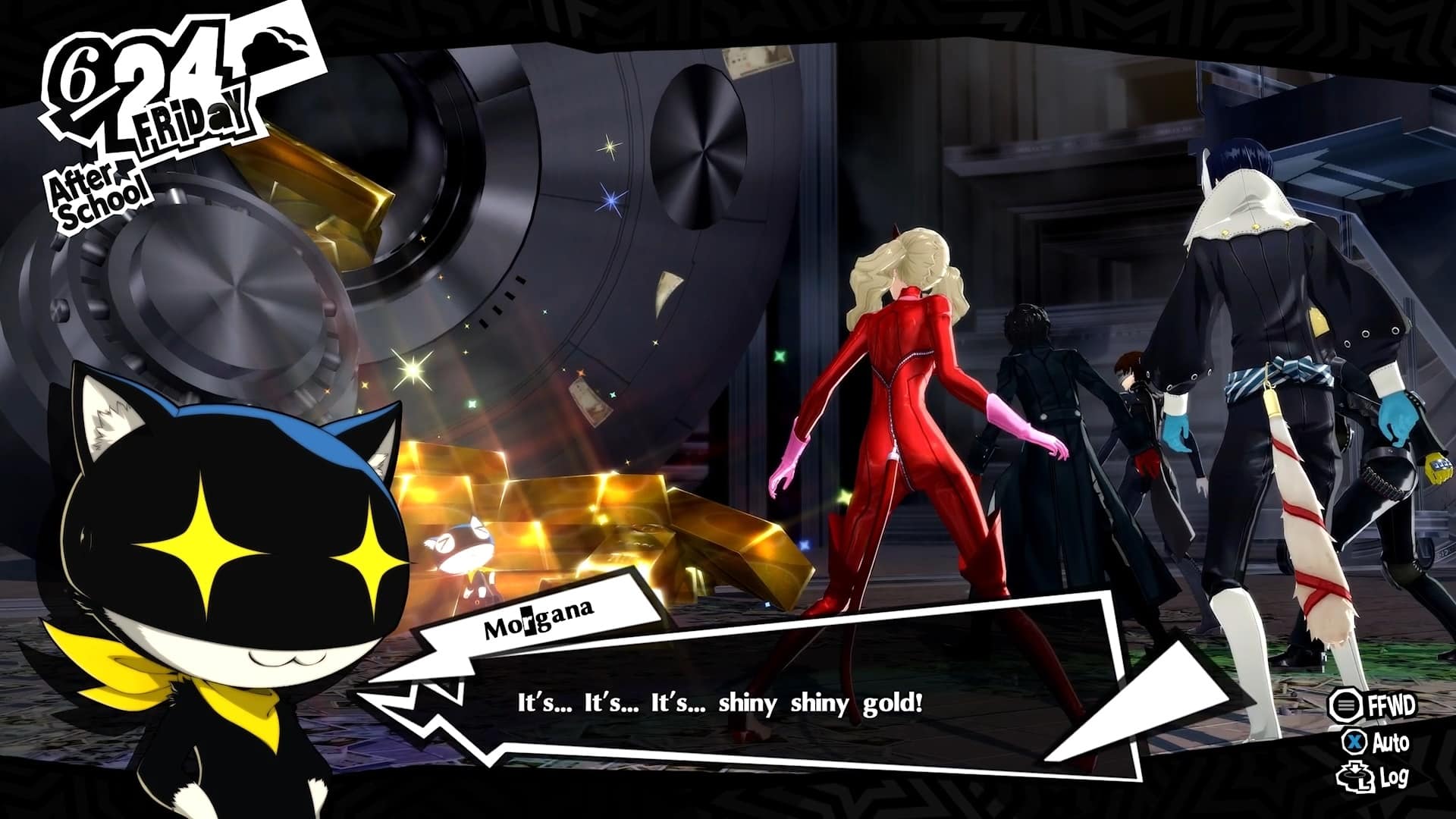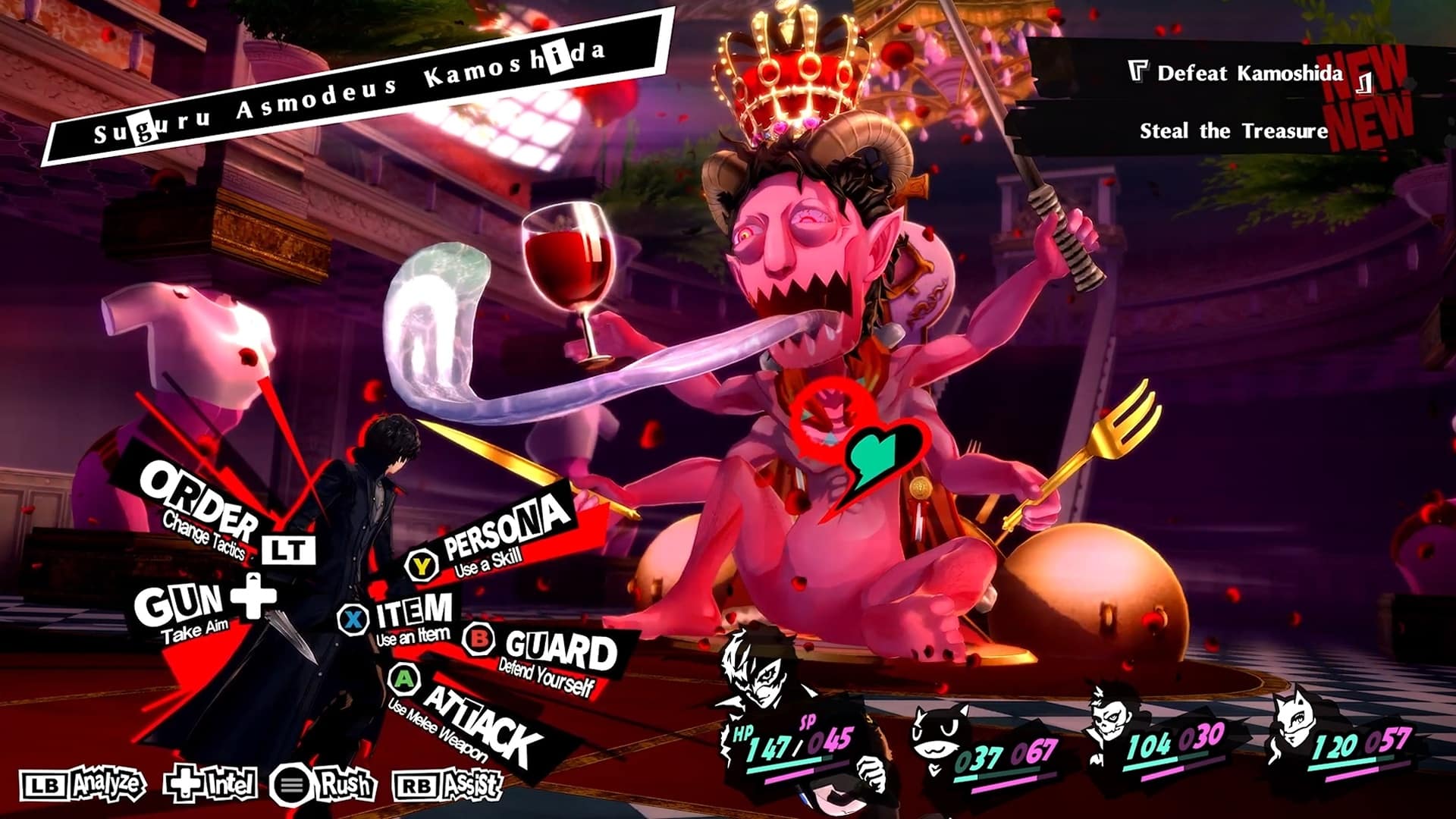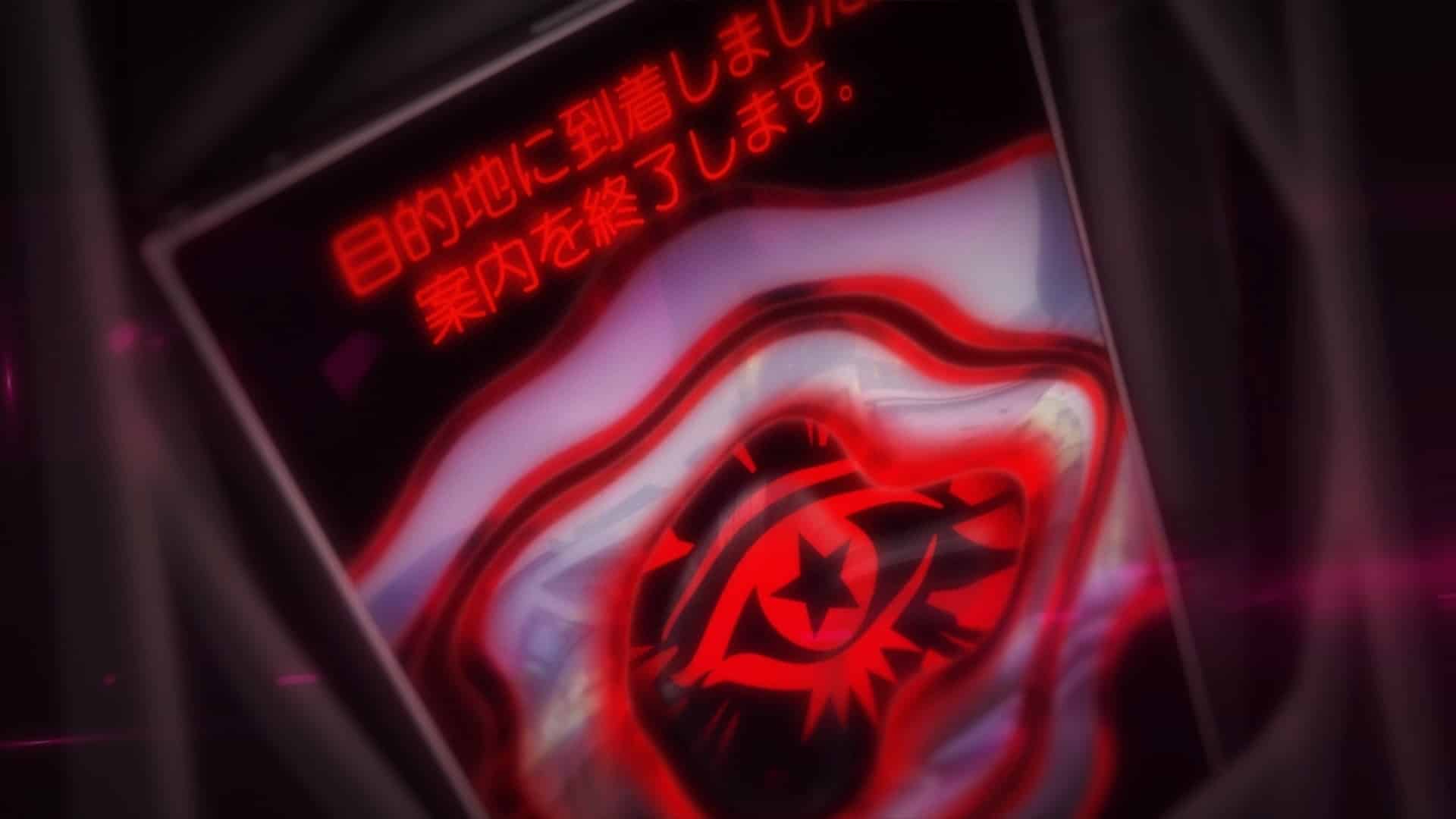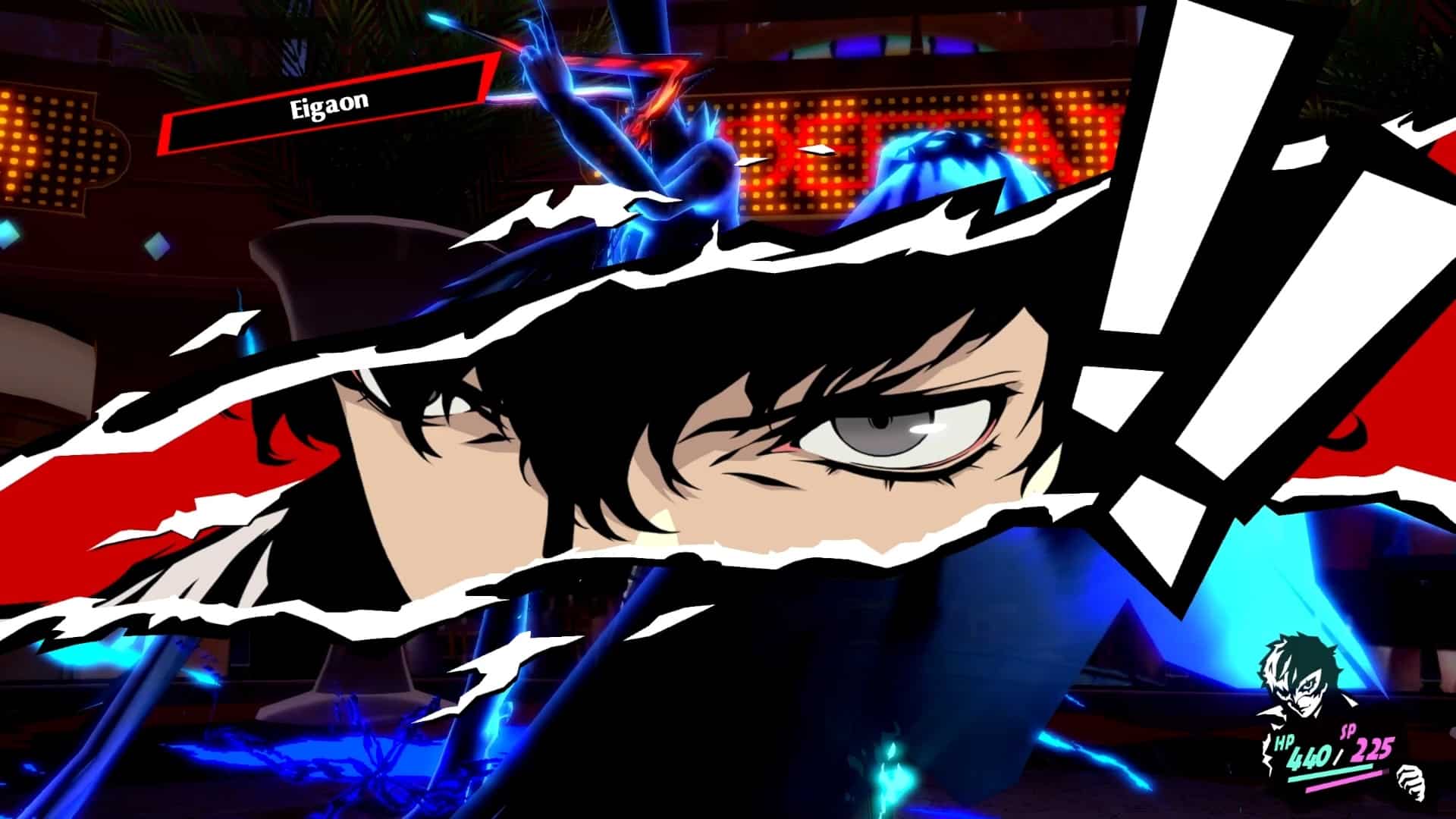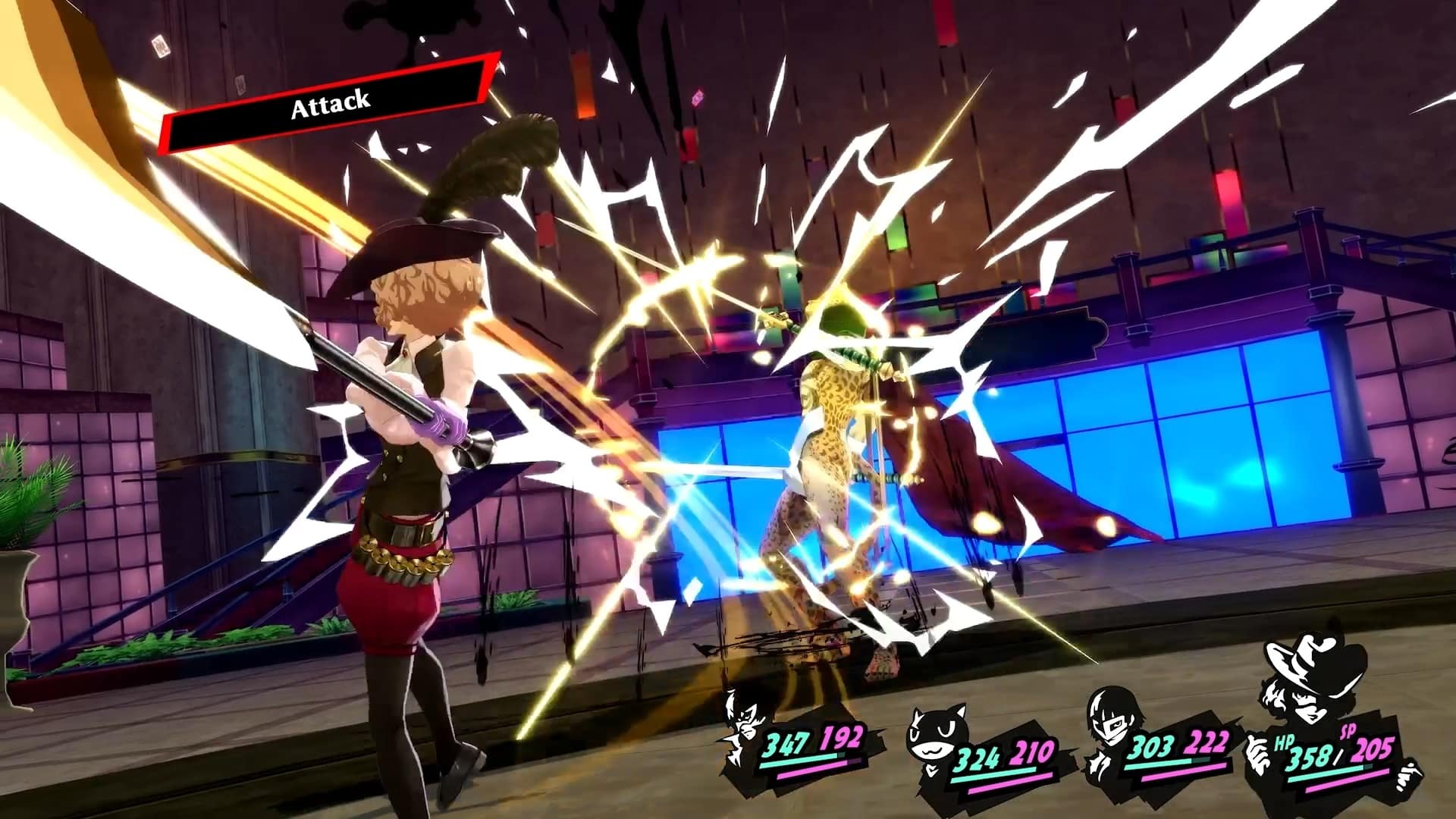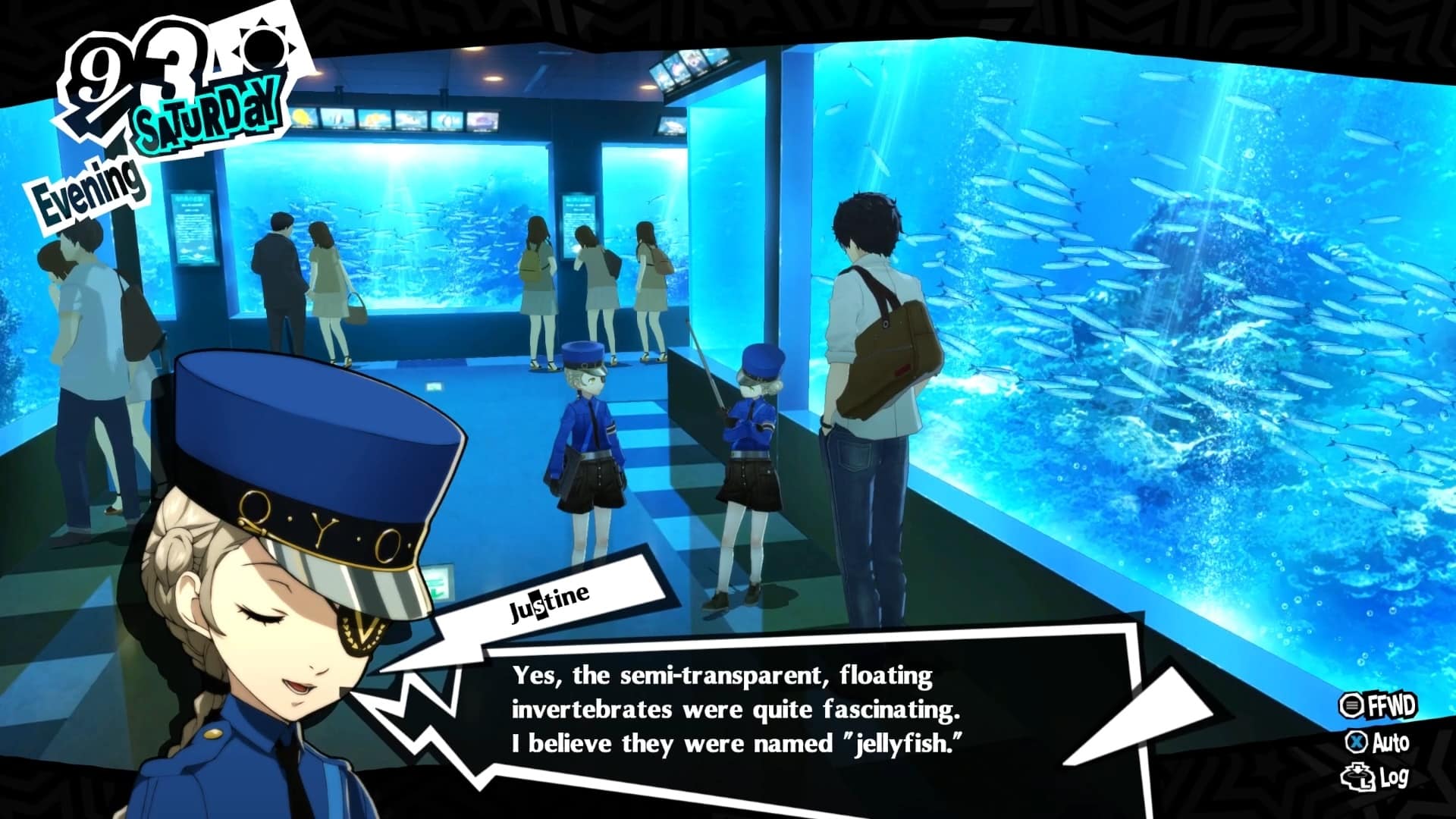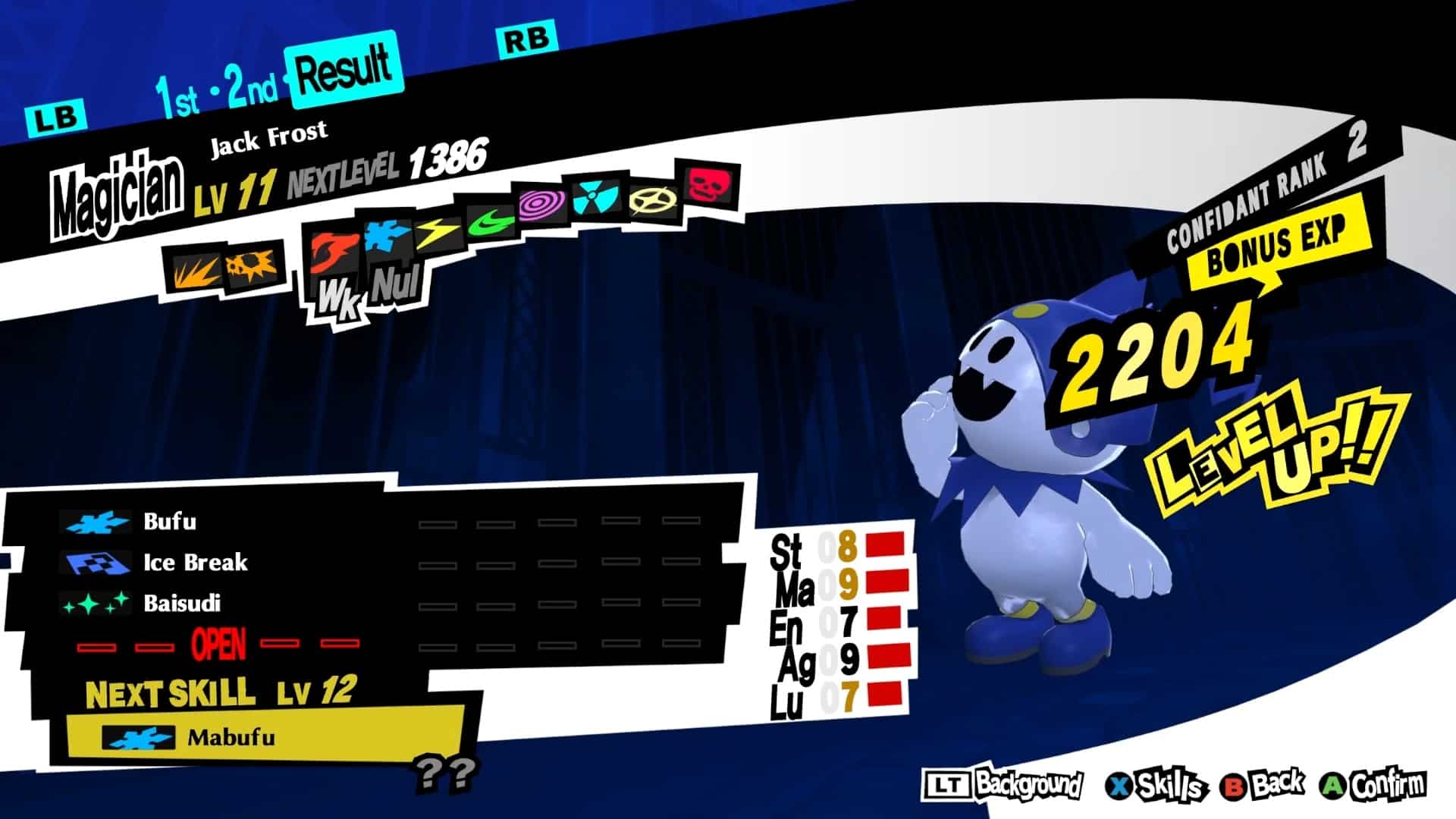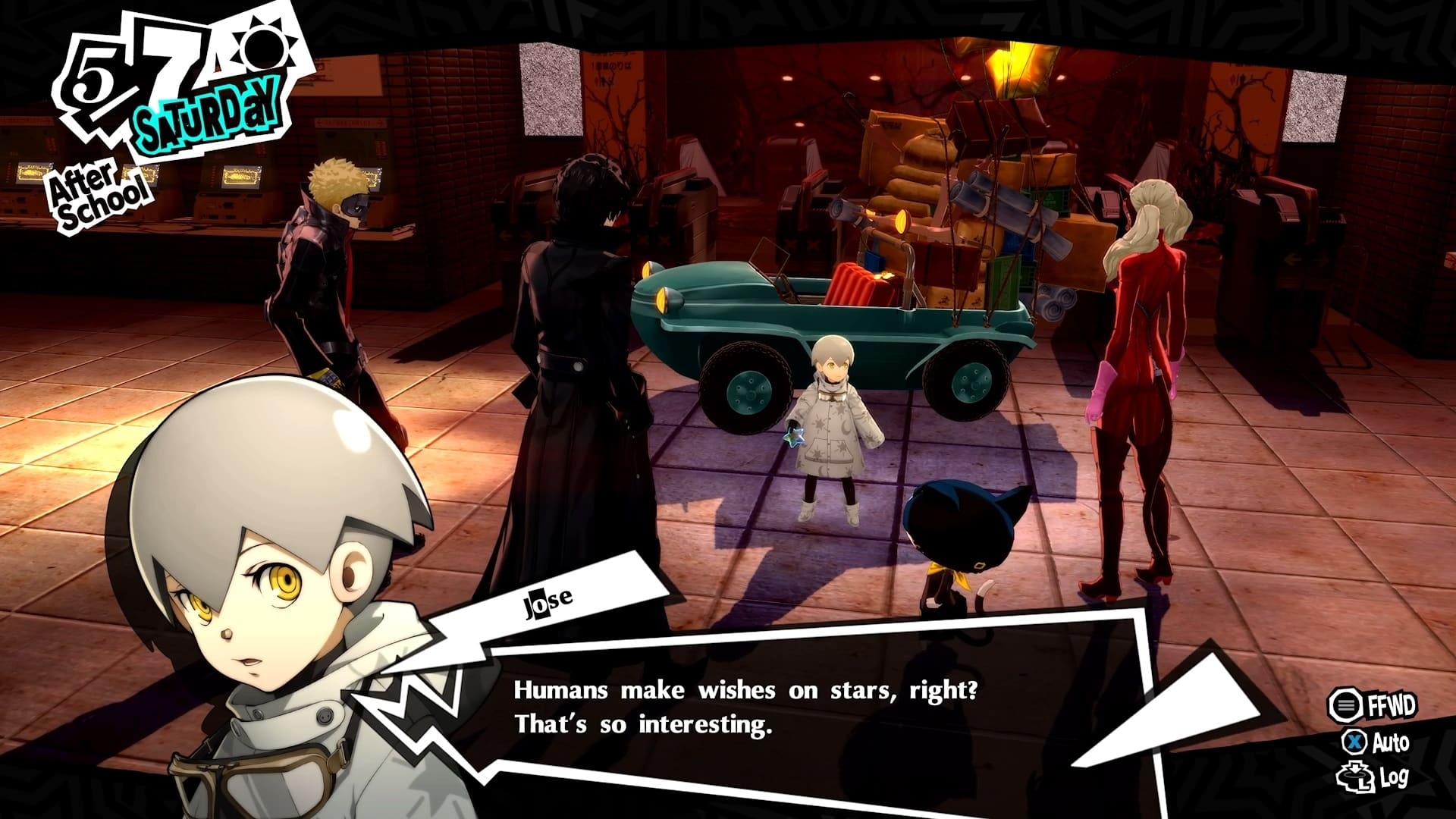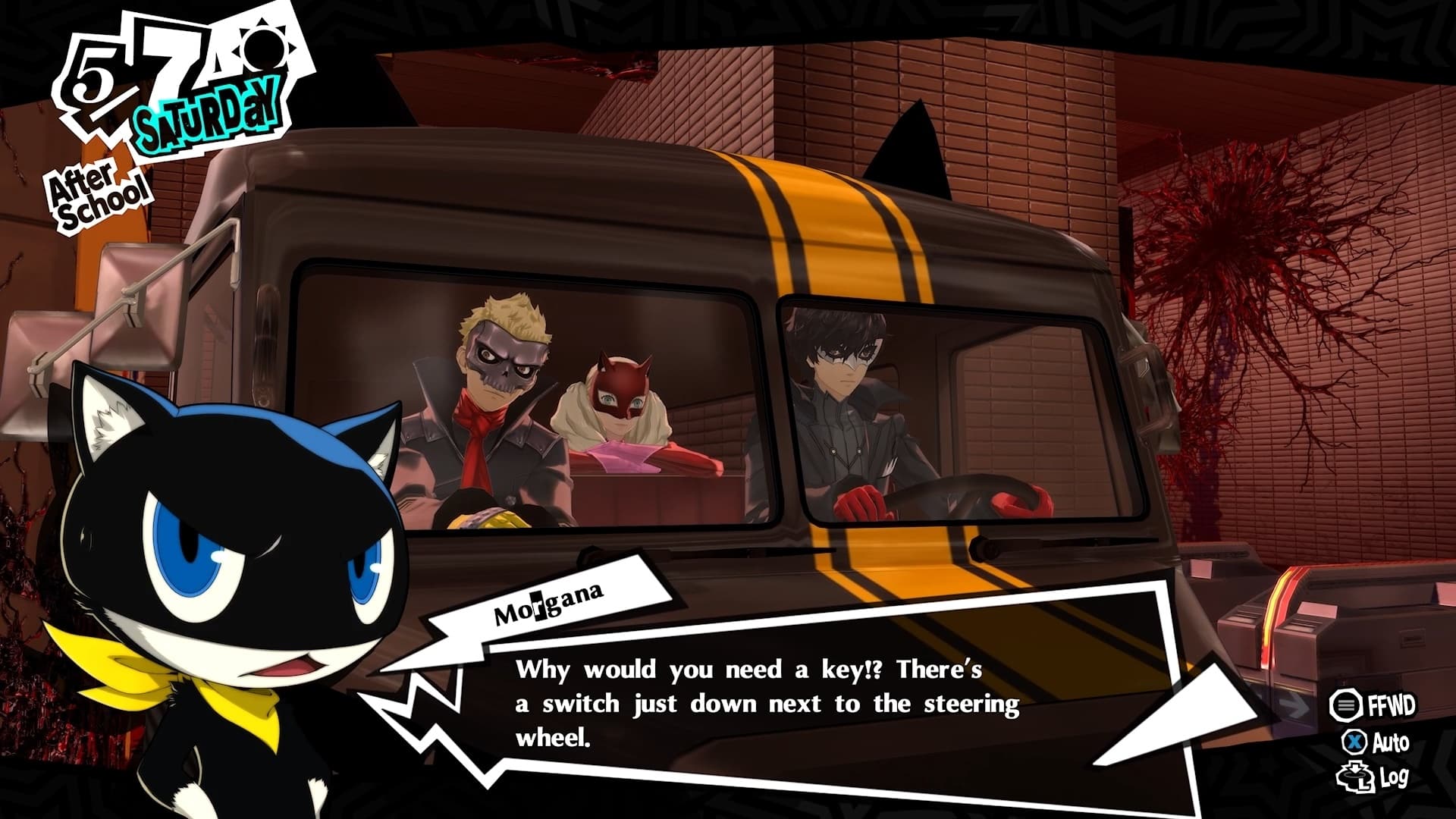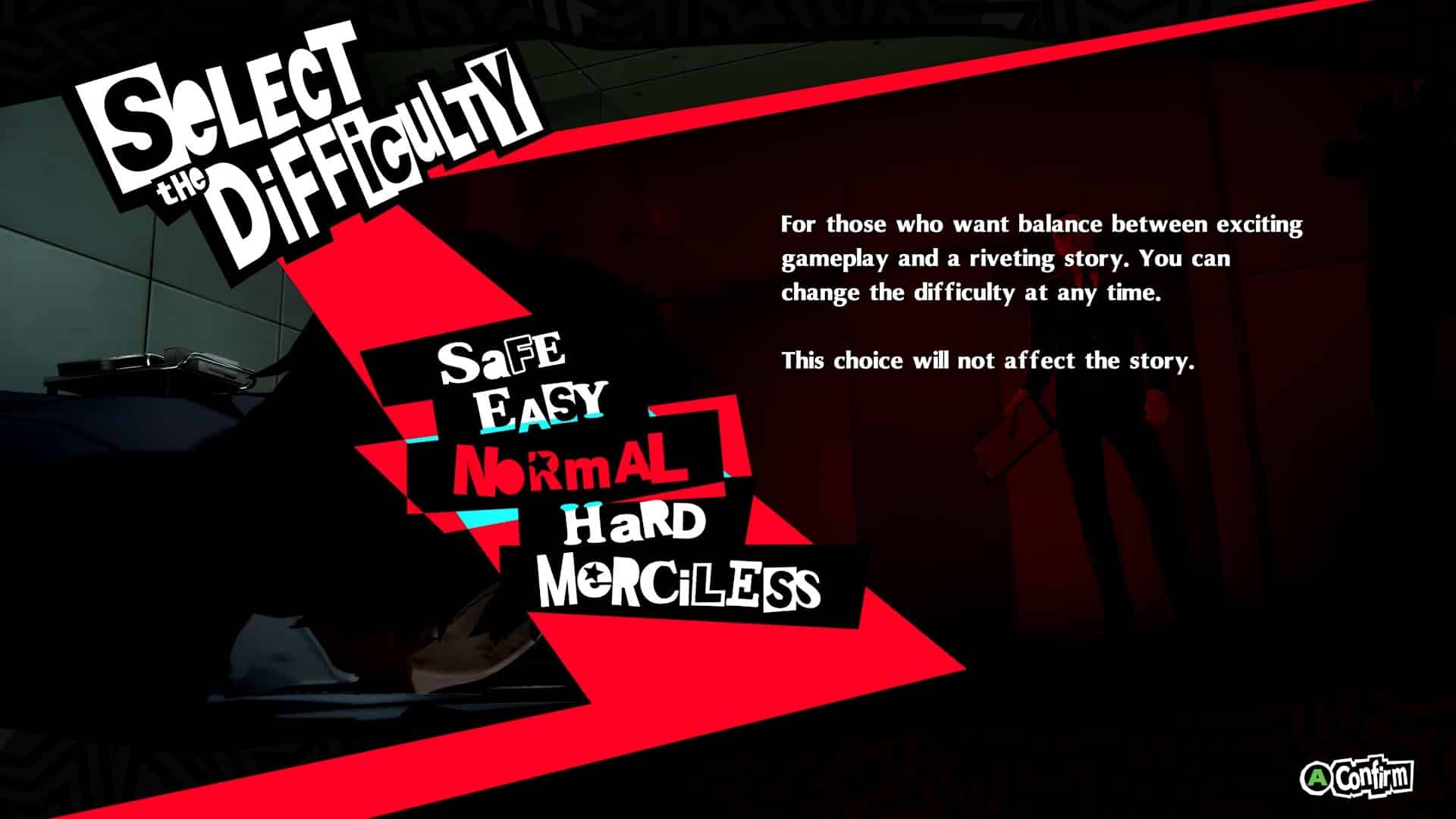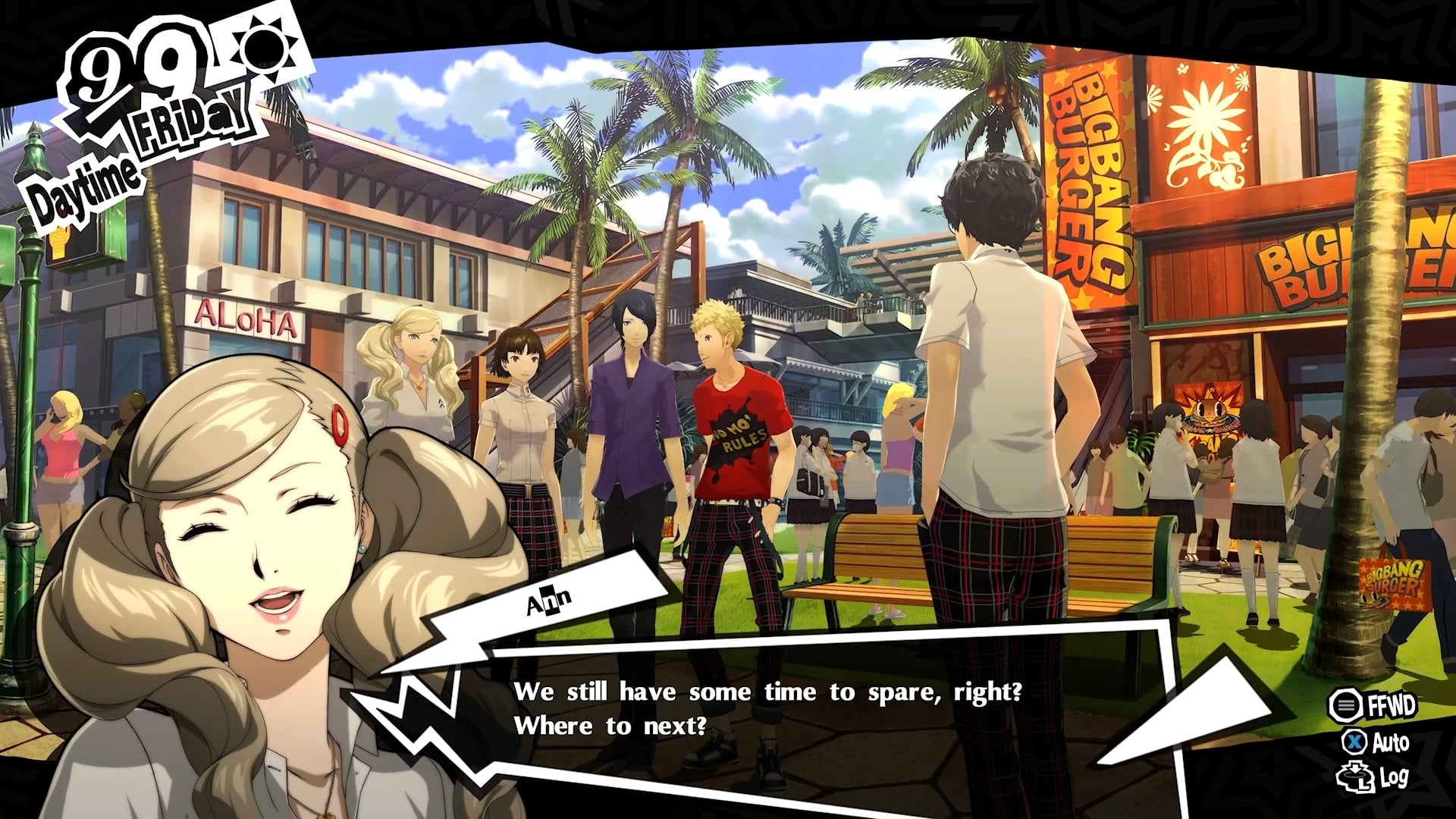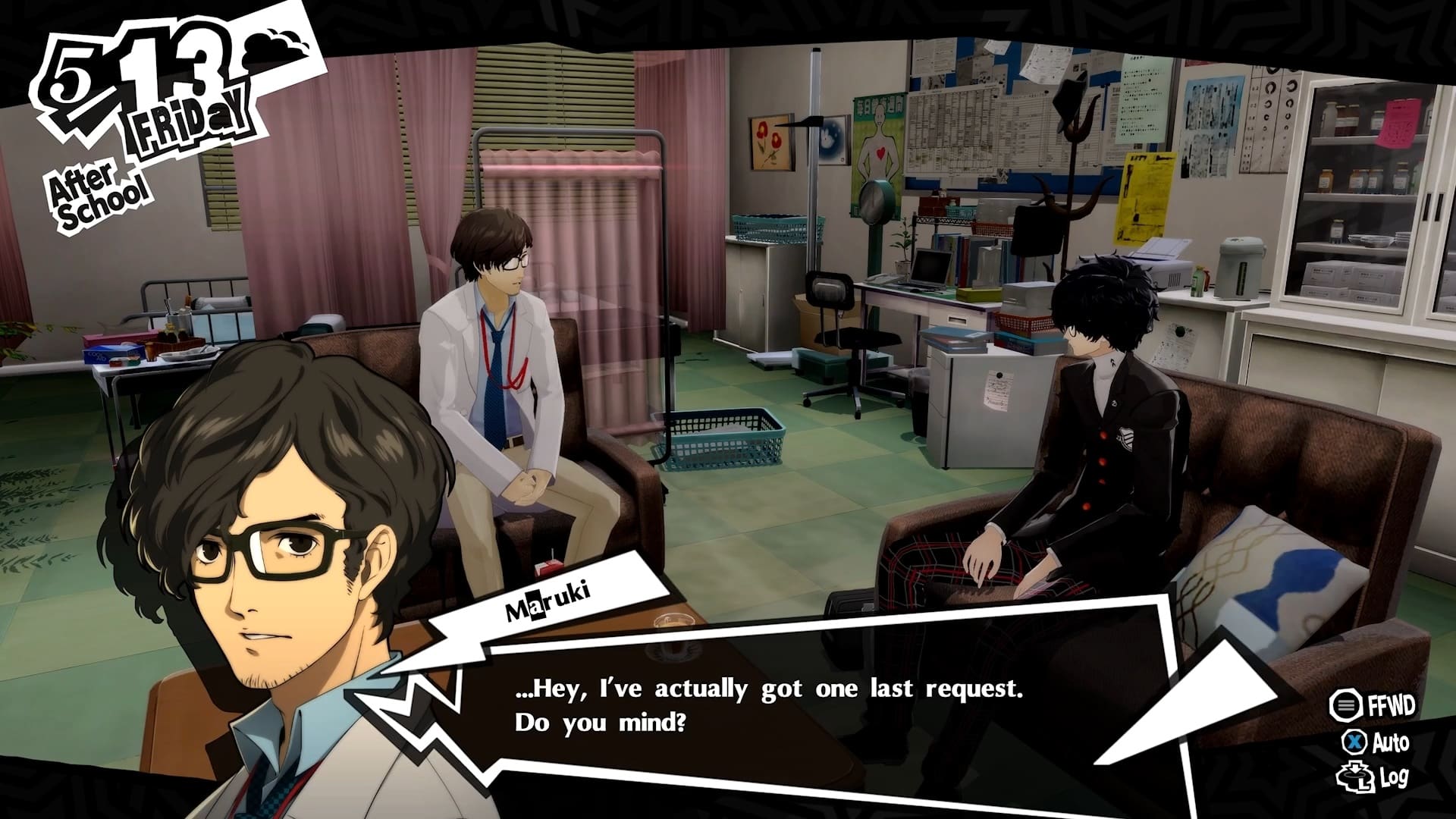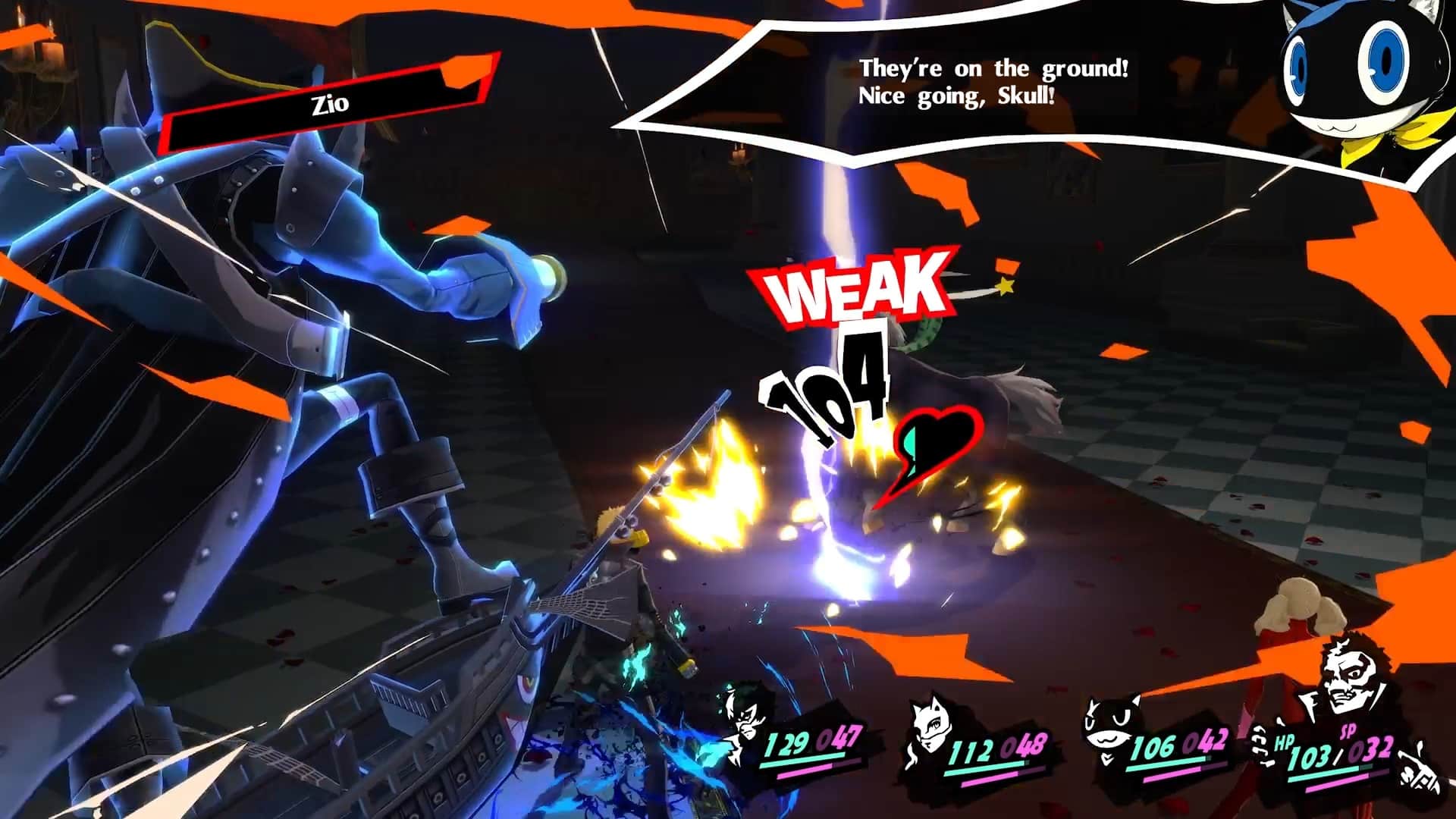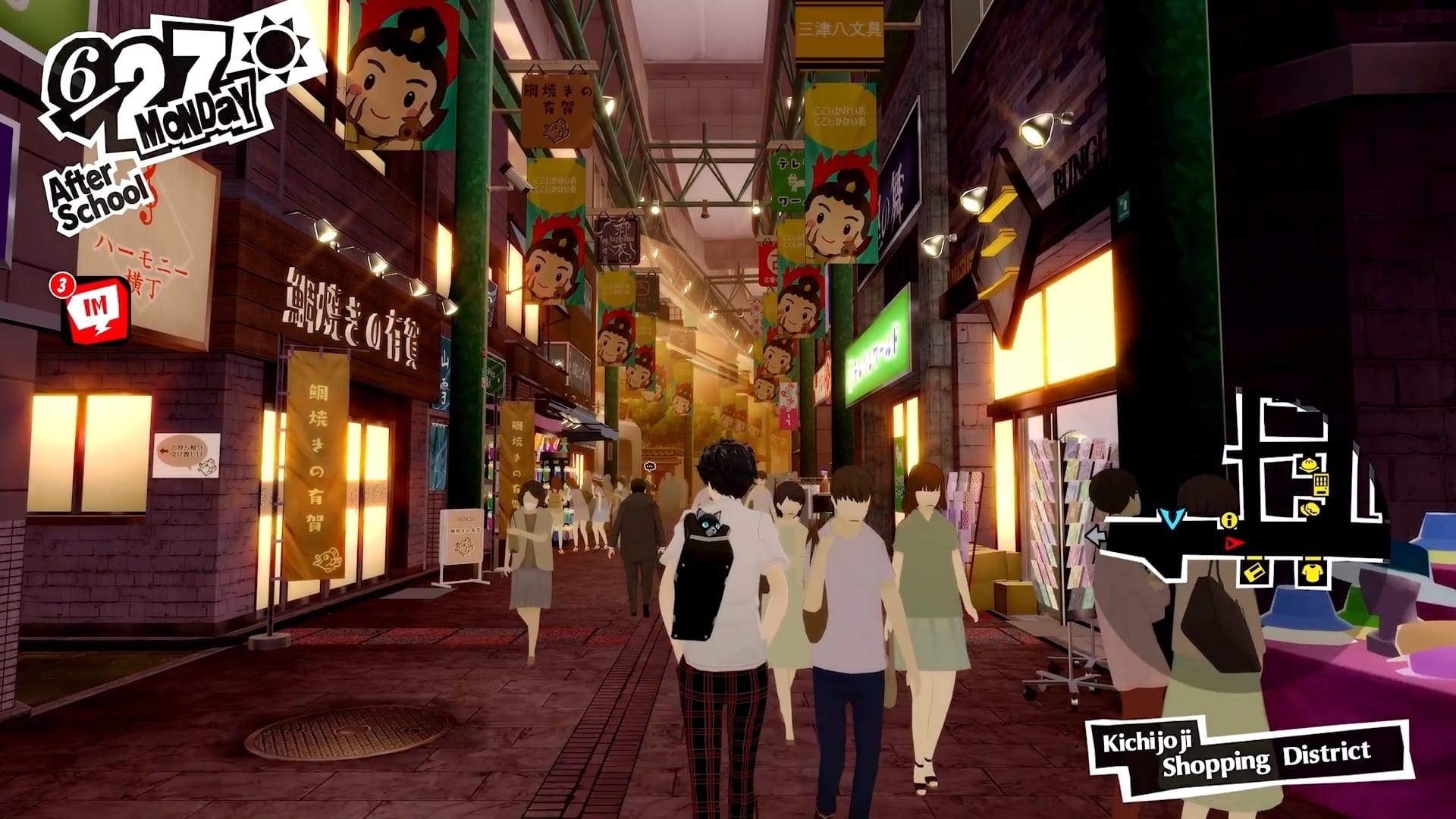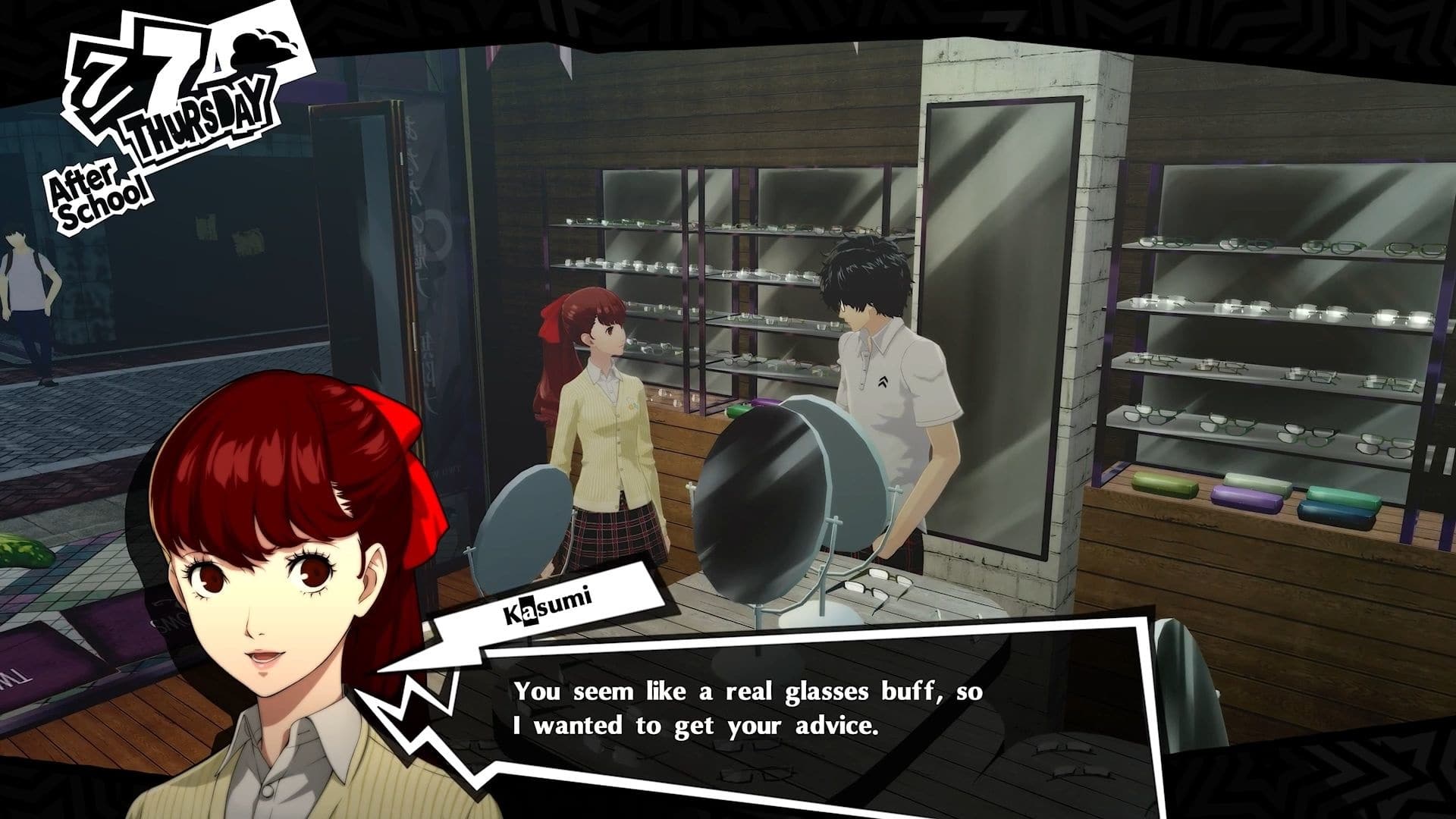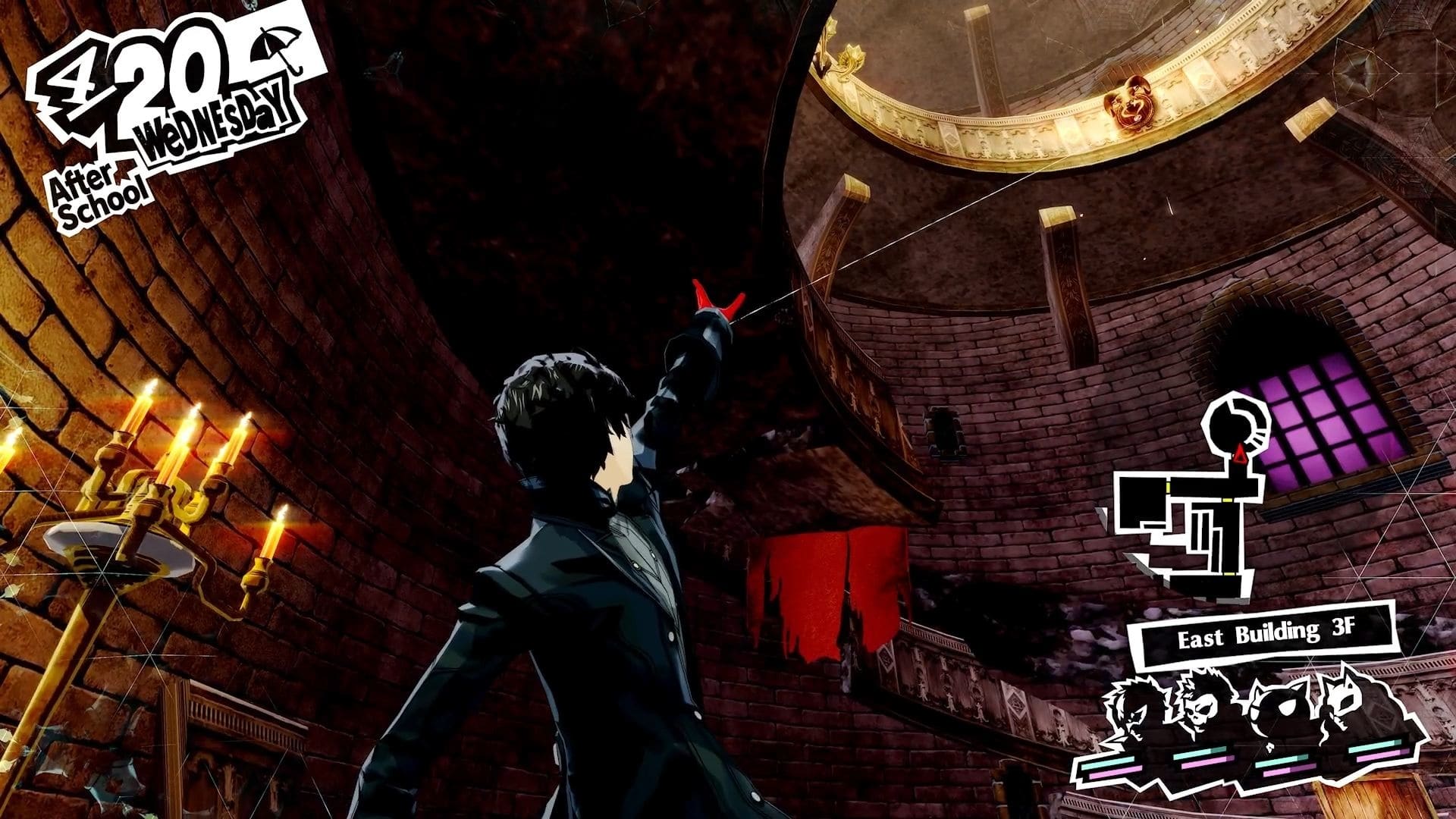Persona 5 may put off RPG purists with its anime look, but it’s rightfully one of the highest-rated games of all time, something you can finally experience on PC.
Why Atlus’ role-playing masterpiece included in Game Pass rightly has a Steam rating of 97 percent and deserves your attention even if you can’t do much else with brightly colored JRPGs.
Table of Contents
What Persona 5 is about
Persona 5 was originally released exclusively for PlayStation 4 and PlayStation 3 in September 2016, requires no knowledge of its predecessors, but just like the other series installments, mixes classic JRPG dungeon crawling with an everyday life simulation.
Everyday simulation: For half of the 80 to 140 hours of gameplay, depending on how you play, you slip into the skin of a high school student who is shipped to Tokyo after a suspended sentence for assault and has to find his way around in a completely new environment.
You have numerous conversations, cram for school, take on part-time jobs, visit cinemas, restaurants or arcades and – most importantly – make new friends. As the story progresses, more and more locations open up to you, and so do more and more ways to spend your time.
This is meant literally, because every action costs you time and needs to be carefully considered. Especially since everything you do directly influences your five basic character values: courage, charm, knowledge, kindness and skill. And these not only affect your chances of success in the normal everyday life of Tokyo, but of course also the second half of the game in Persona 5.
JRPG Dungeon Crawler: On your very first day in your new home, a mysterious app installs itself on your mobile phone that allows you to switch to the dark side of Tokyo, the so-called Metaverse.
Here, the human abysses of your real-world adversaries manifest themselves in a total of eight extremely varied mind palaces – large dungeons crammed with monsters, secrets, puzzles and final bosses.
The psyche of a sadistic sports teacher, who in reality sexually harasses or abuses his pupils, thus becomes a medieval castle complete with prison and torture cellar in the Metaverse. In the psyche of an art forger, you explore a grotesque art gallery, including accessible paintings.
Battles are fought turn-by-turn and with the eponymous Personas – over 200 demonic creatures with a wide variety of abilities that live in the Metaverse and which you must collect, level up and even fuse like Pokémon in order to stand a chance in the increasingly challenging battles.
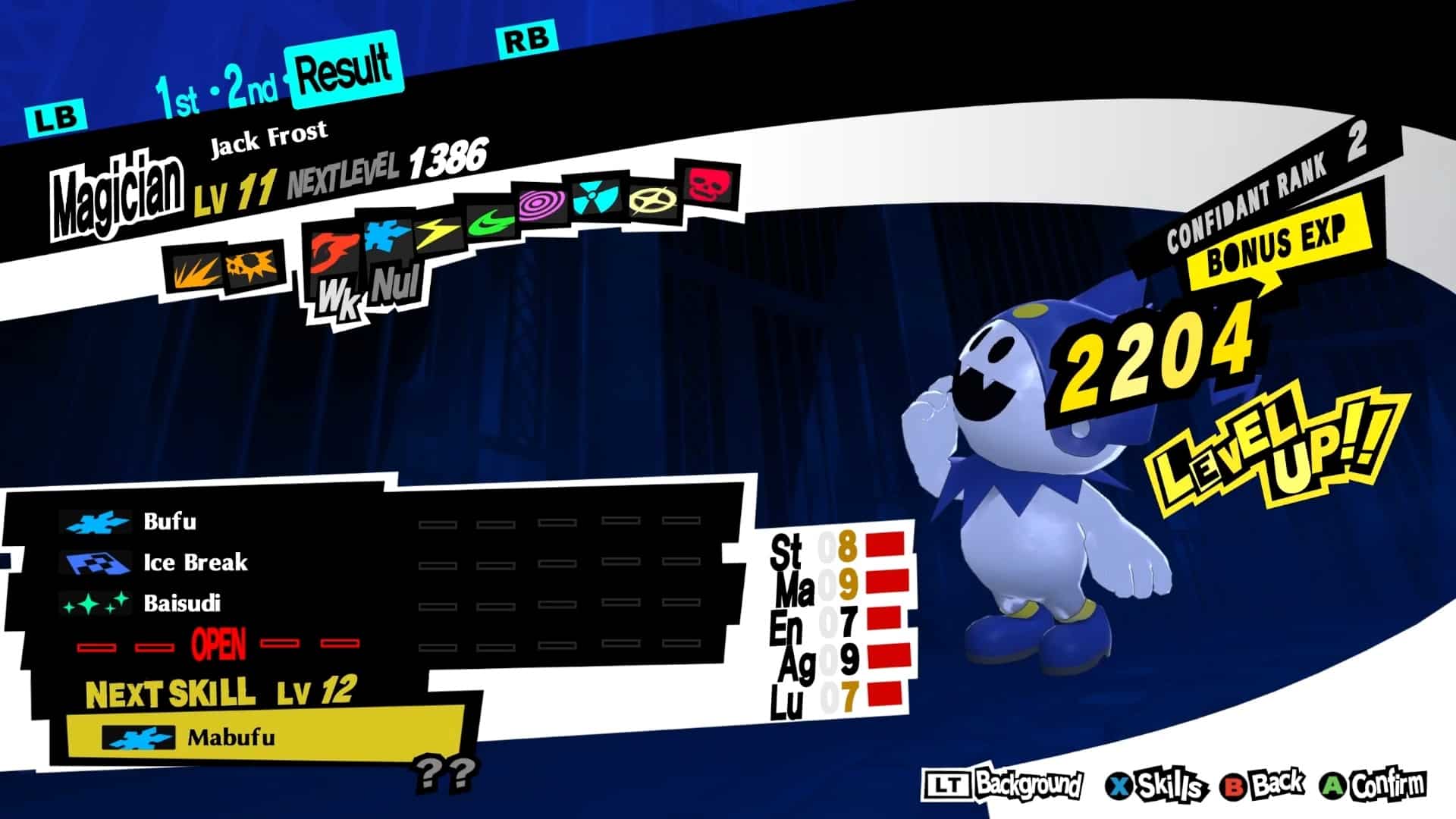
What makes Persona 5 so extraordinary
Okay, RPG purists I will have scared off even more now with this unusual scenario and gameplay. But keep giving the game and me a fair chance despite all the scepticism. Because everyday simulation or Pokémon principle: I still say Persona 5 is worthwhile for all (!) role-playing game fans.
On the one hand, there are already more than enough “normal” games, and on the other hand, Persona 5 understands better than almost all other genre representatives of recent years what is most important in a role-playing game.
The dramatic story: abuse, gambling addiction, loneliness, misuse of power, vanity – Persona 5 brings up rows and rows of heavyweight themes without messing with them. Yes, like every JRPG, it also makes massive use of the stylistic device of exaggeration, which here fits the game perfectly through the trick of the metaverse influenced by the human psyche.
At the same time, it takes all the protagonists seriously, not just the main characters. The story masterfully weaves together a wide variety of stylistic devices, from flashbacks to changes of perspective, and surprises with numerous twists and turns. Although it is basically linear, I experience it very individually and personally through my countless daily decisions.
The almost perfect production: Except for maybe God of War, I can’t think of any game in recent years where I feel that its artistic vision could be realised as consistently and uncompromisingly as in Persona 5.
Whether it’s the visuals, soundtrack, narrative, level design or menus: Everything here feels like it was cast from one mould, and that from beginning to end. Even things that annoy or irritate me at first make complete sense after a moment’s thought. Quest markers would perhaps save me a lot of wandering through Tokyo in the first few hours of the game, but they would also rob me of the illusion of finding my way around a city that was initially unfamiliar to me.
The grandiose flow of the game: Although, or precisely because, Persona 5 is often about banalities, something exciting is constantly happening. The idle time typical of the genre is kept within narrow limits without it being at the expense of the ambition.
The dialogues are numerous, but quickly get to the point. I don’t move through the dungeons sluggishly, but at lightning speed. And I soon navigate through Tokyo, which is confusing at first, just as easily as through the clearly structured menus.
But it’s the battles that excite me the most. Except for the sometimes truly epic boss fights, they rarely last longer than a few minutes, but still reward me immensely for my clever tactics.
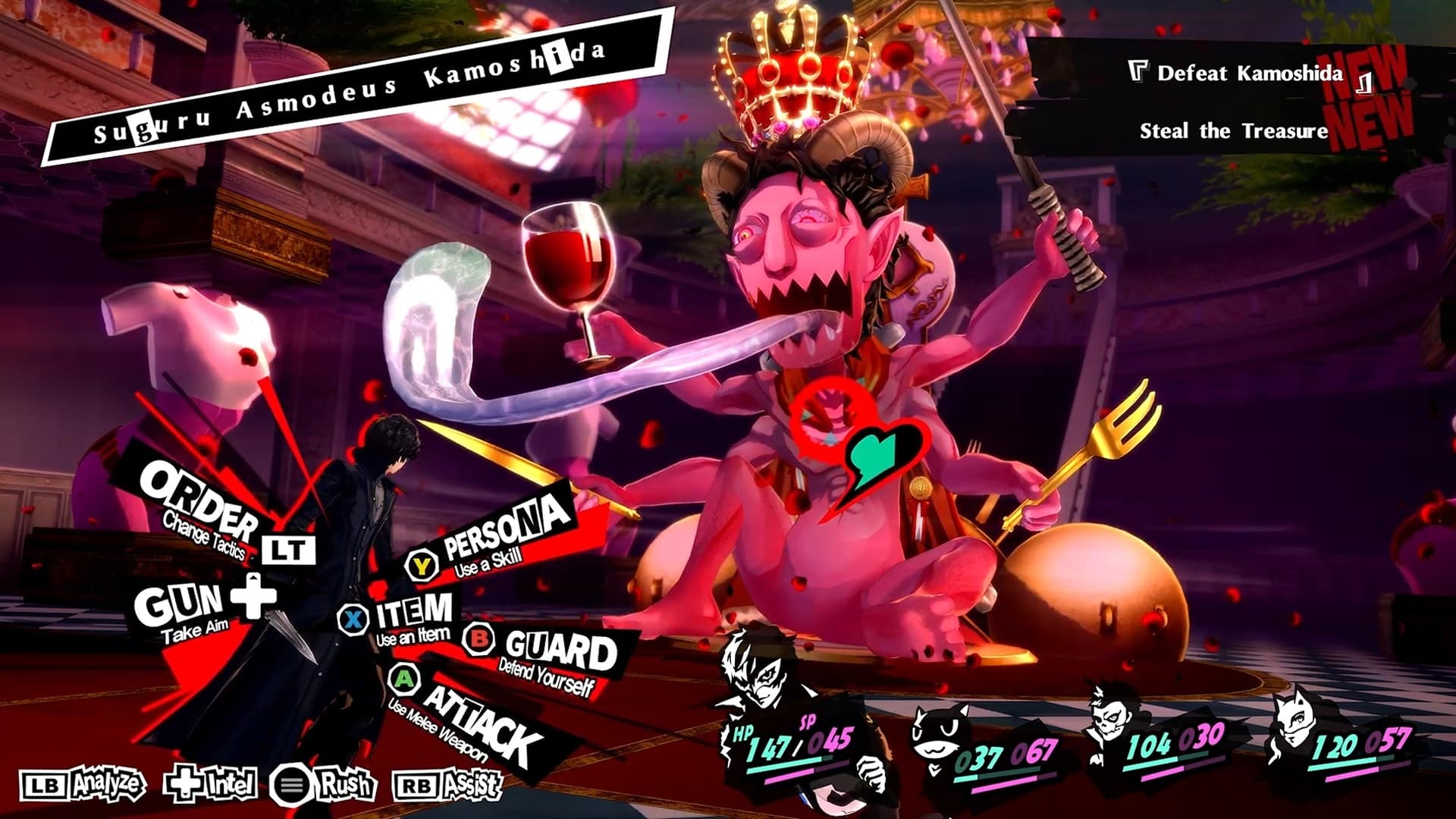
If I read the enemies’ behaviour correctly and use the appropriate Persona abilities on my part, I string together spectacular combos despite the turn mode and feel not only insanely smart but also insanely powerful.
Every decision has weight: whether conversations, battles, Persona management or even leisure activities – everything feels important in Persona 5. It’s not so much about striking dialogue or skill tree decisions as in other role-playing games. In Persona 5, everything is simply connected to everything else.
Depending on which book I read or which film I watch, it affects my character values differently. The more time I spend with one person, the less time I have for the other. And the better I get along with one person, the more powerful personas I can summon in the metaverse.
What can the PC version of Persona 5 Royal do?
The Royal edition of Persona 5 was originally released for the PlayStation 4 in 2019 and is effectively a director’s cut. It adds two new characters that integrate seamlessly into the game as well as a third school semester including a new story and an additional dungeon.
In addition, there are various smaller optimisations that make the game experience even more rounded than in the original. Firearms are more powerful, many bosses have been reworked, you can now use a new grappling hook in dungeons and, thanks to well-hidden “will seeds”, you can replenish your mana more often.
By far the most important improvement, however, is the German on-screen texts that help you understand the English or Japanese voice output. In the original Persona 5, there were only English texts, which made it unnecessarily difficult or even impossible for many to access this JRPG masterpiece.
Also remarkable, because unfortunately still not a matter of course: the successful PC port. The stylish anime look has lost none of its charm in the six years since release, runs at a stable 60 frames per second even on weaker systems, but also supports 4K at up to 120 FPS. Annoyingly, however, you have to do without native Ultrawidescreen support.
But Persona 5 is also easy to control with keyboard and mouse, you can freely configure the key assignment, and the game dynamically adjusts the screen displays, should you want to reach for the gamepad.
Why I really recommend Persona 5 to everyone
I’m actually not a big anime fan and was primarily influenced in my RPG tastes by classic western RPGs like Ultima, Lands of Lore, Baldur’s Gate, Gothic or The Witcher. I had only heard of the first four Personas in passing, but never played them, and my interest in J-Culture is also very limited.
So actually the worst possible prerequisites for a game like Persona 5, in which an anime portrait grins at me in every dialogue and in which a cat turns into a bus with which I board through a demonic version of the Tokyo subway tunnels.
Normally, I also deliberately take my time with monumental role-playing epics. Nevertheless, I played through Persona 5 in a frenzy and absorbed everything this masterpiece has to offer in my 140 hours. I just wanted to dive deeper into this fascinating world every night, find out what happened to the characters I had grown fond of, unlock new battle strategies and try them out right away.
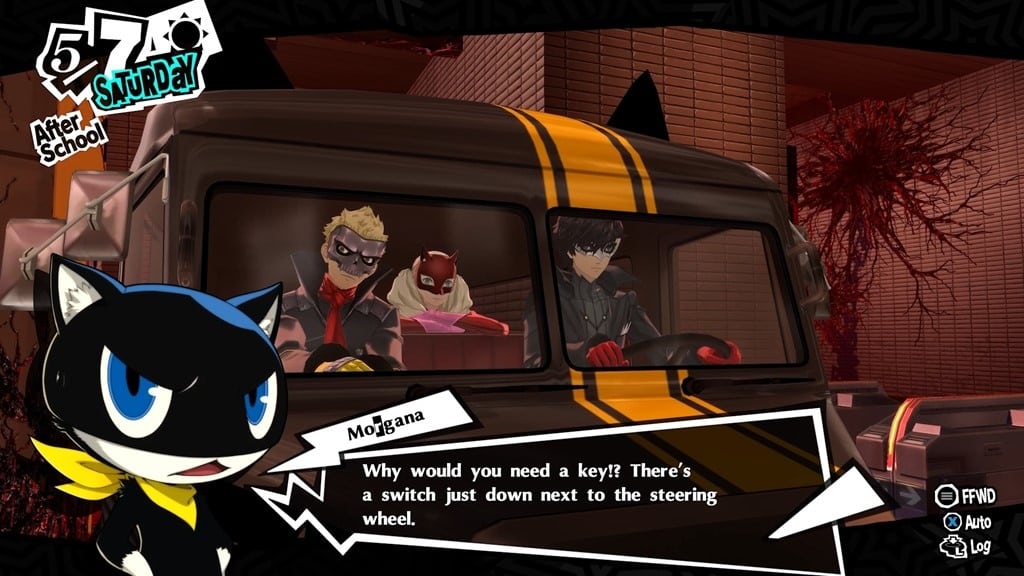
I’m sure: If you have even a little bit of a heart for role-playing games off the beaten track and are open to unusual scenarios, you’ll have a great time with Persona 5. Whether it’s worth the full price of 60 euros to trust me and jump into the cold JRPG water is, of course, up to you to decide.
However, Persona 5 Royal is also part of the Game Pass. So if you already have a subscription, you have nothing to lose except a few hours of your free time.
Editor’s conclusion
When Persona 5 was released in March 2017, I actually only wanted to take a quick look out of curiosity because I already had Horizon: Zero Dawn, Mass Effect: Andromeda and Zelda: Breath of the Wild on my agenda at the same time. It was a pretty sensational release month back then.
And it speaks volumes for the quality of Persona 5 that all these western blockbusters had to pause while I sank deeper and deeper into the fascinating world of Tokyo.
Persona 5 is one of those very rare instances of serendipity where one cog really does mesh perfectly with another – whether it’s story, character design, dungeon design or battle system. All of this is just as true today as it was five years ago, and the stylish anime look has lost none of its charm.
The Royal Edition polishes off the last rough edges of this masterpiece with sensible optimisations, and the PC port is also absolutely clear. Anyone who has missed Persona 5 to date should give it a chance now at the latest.

